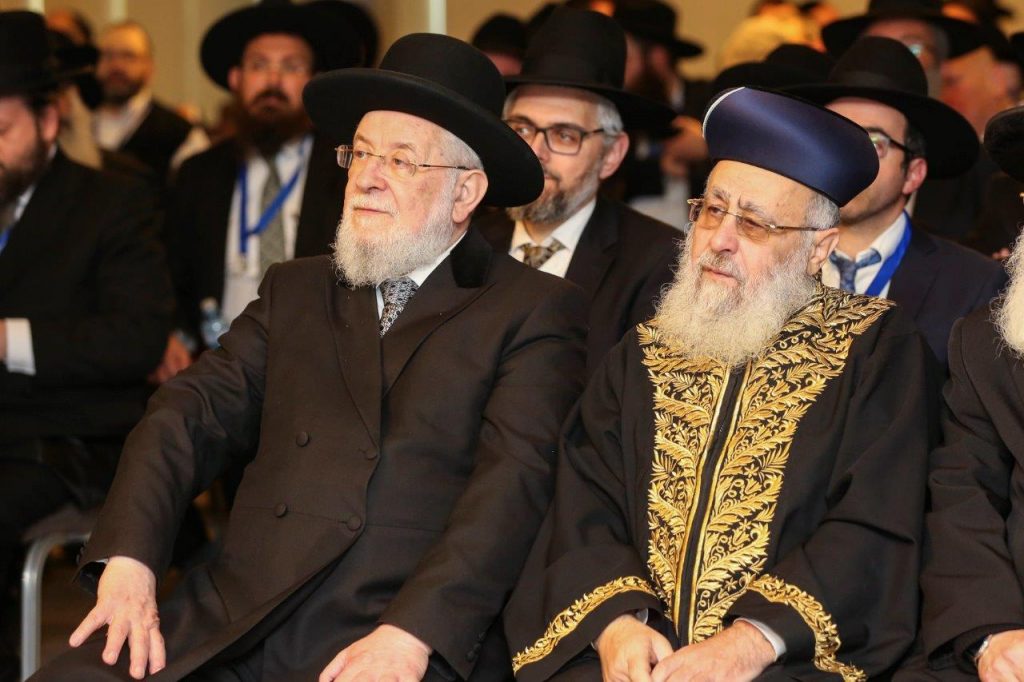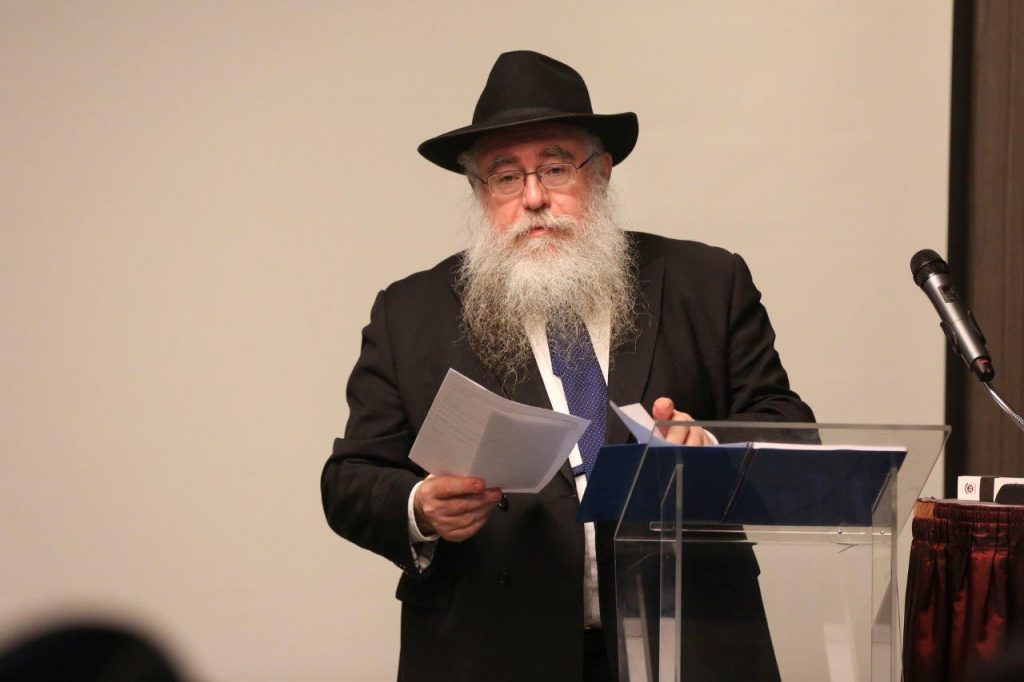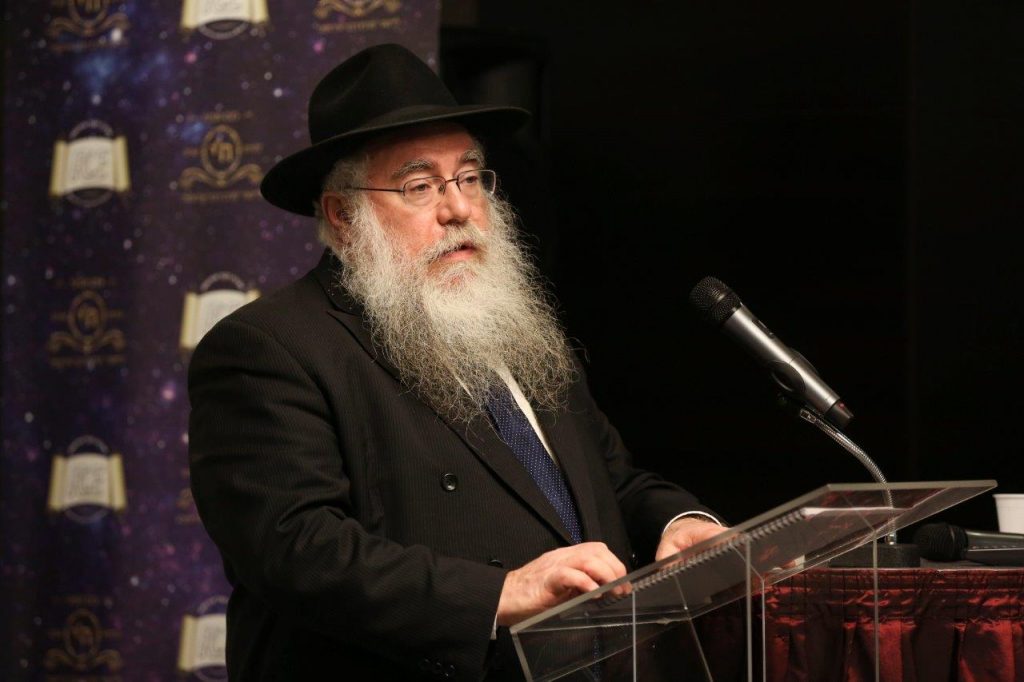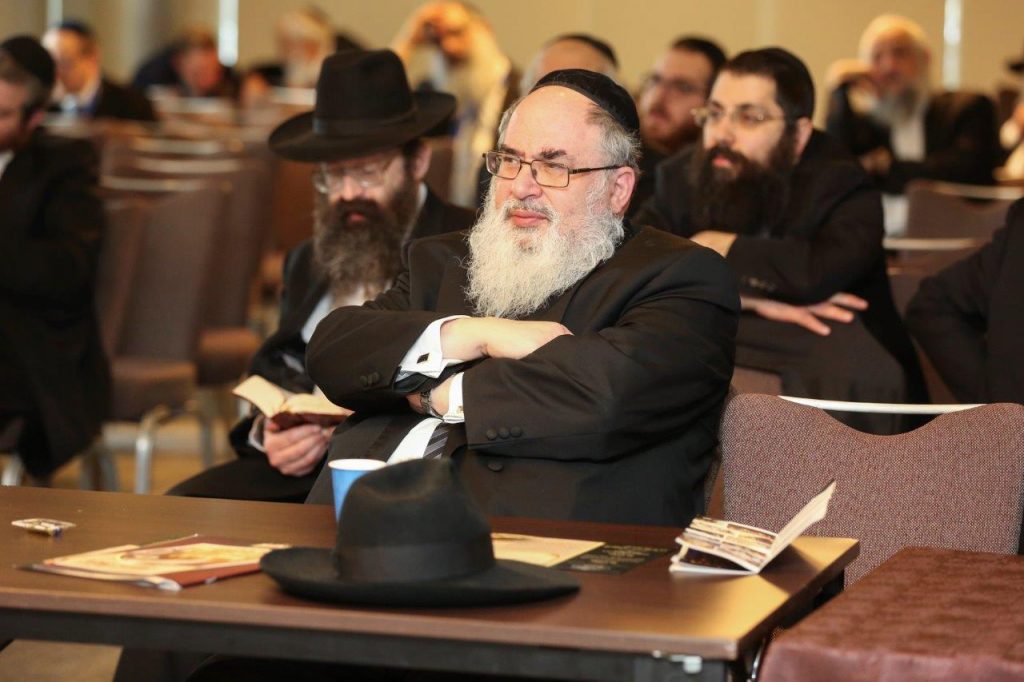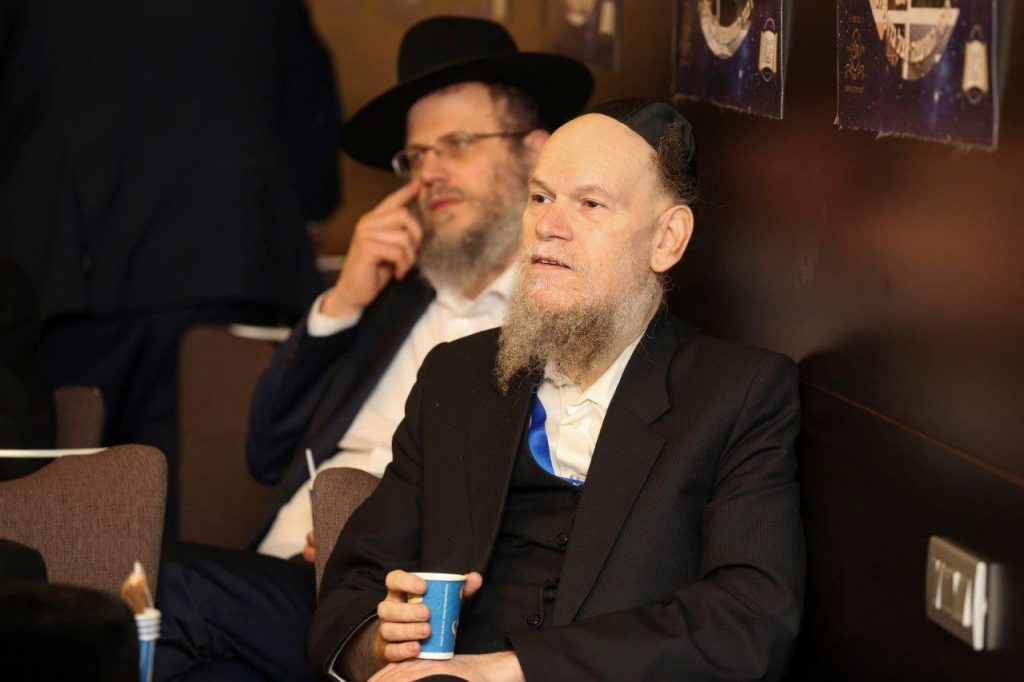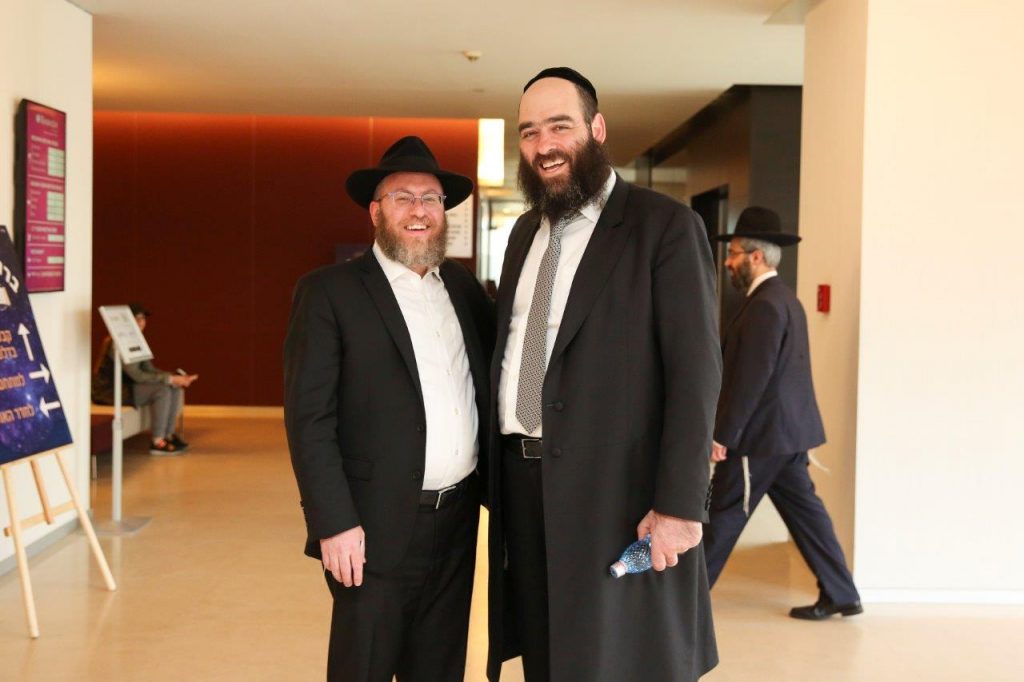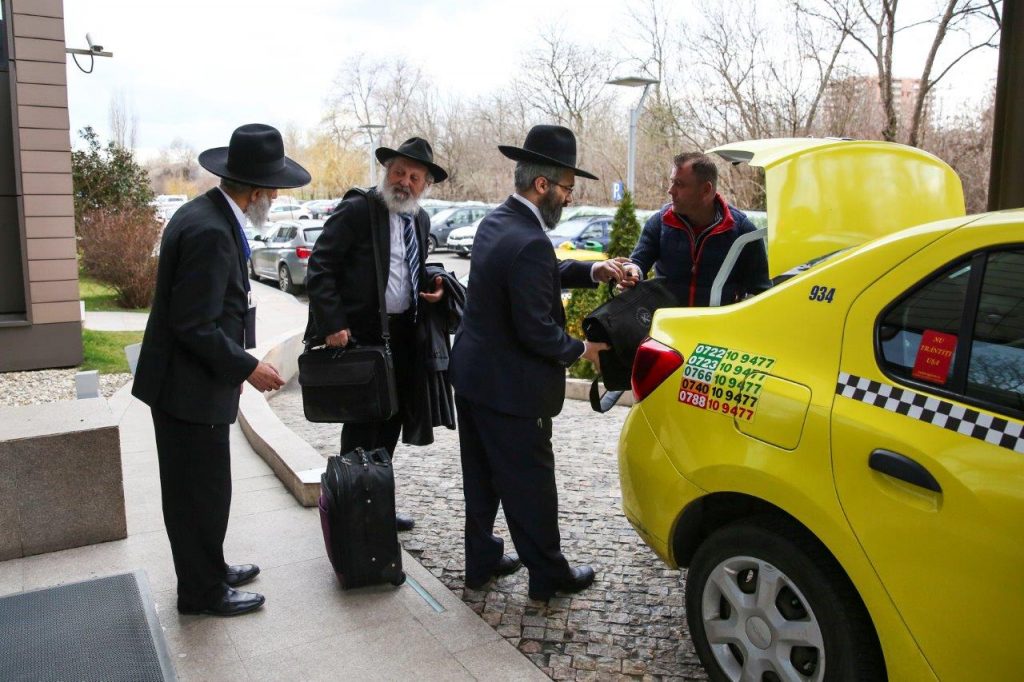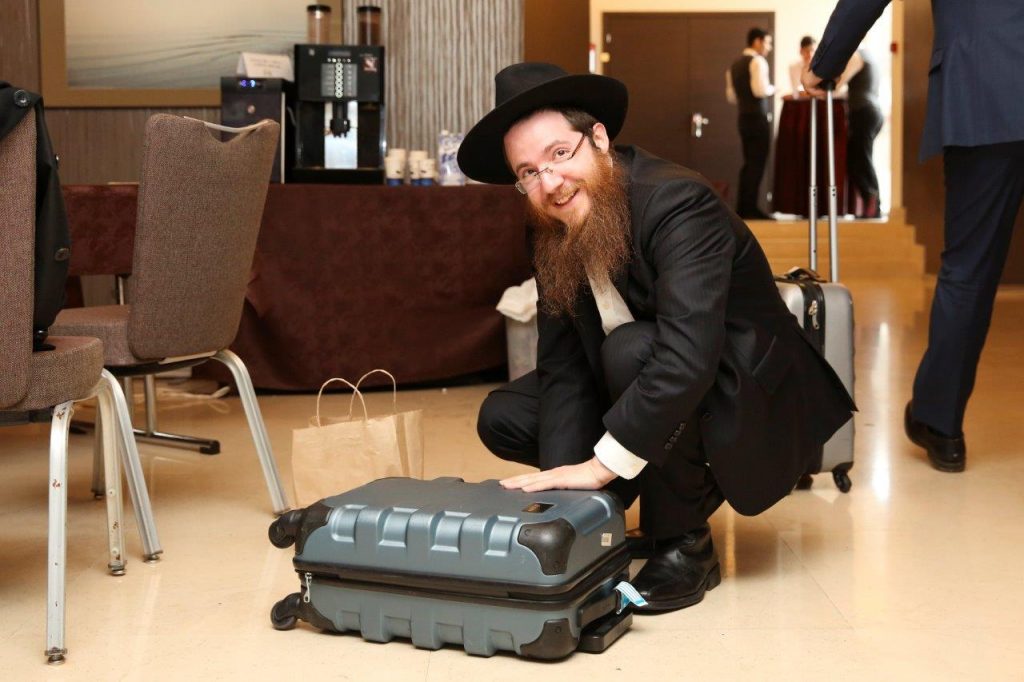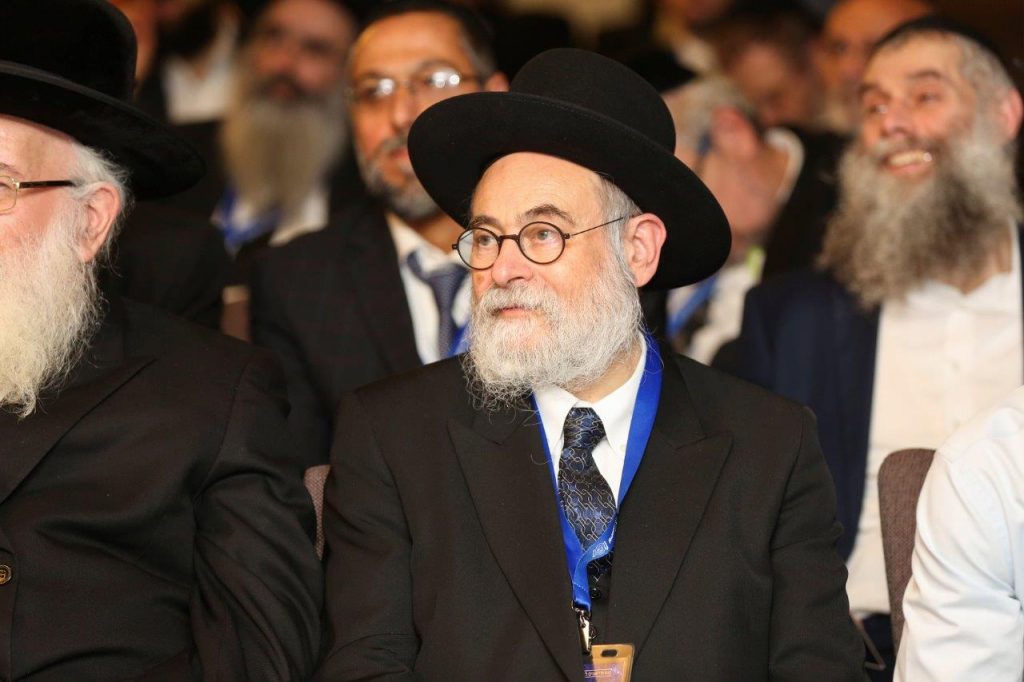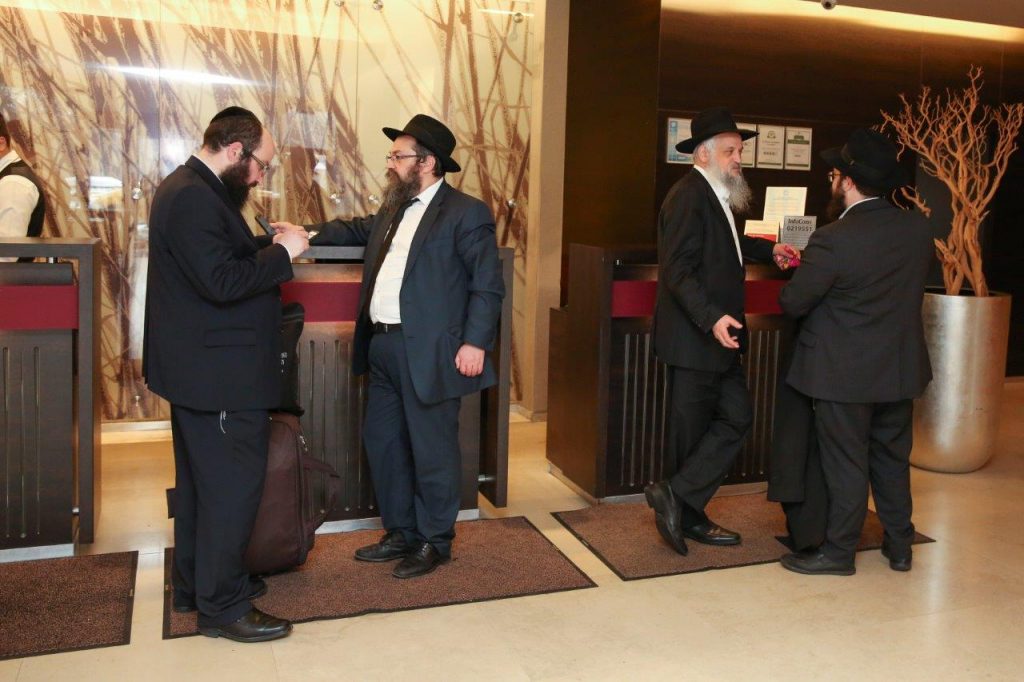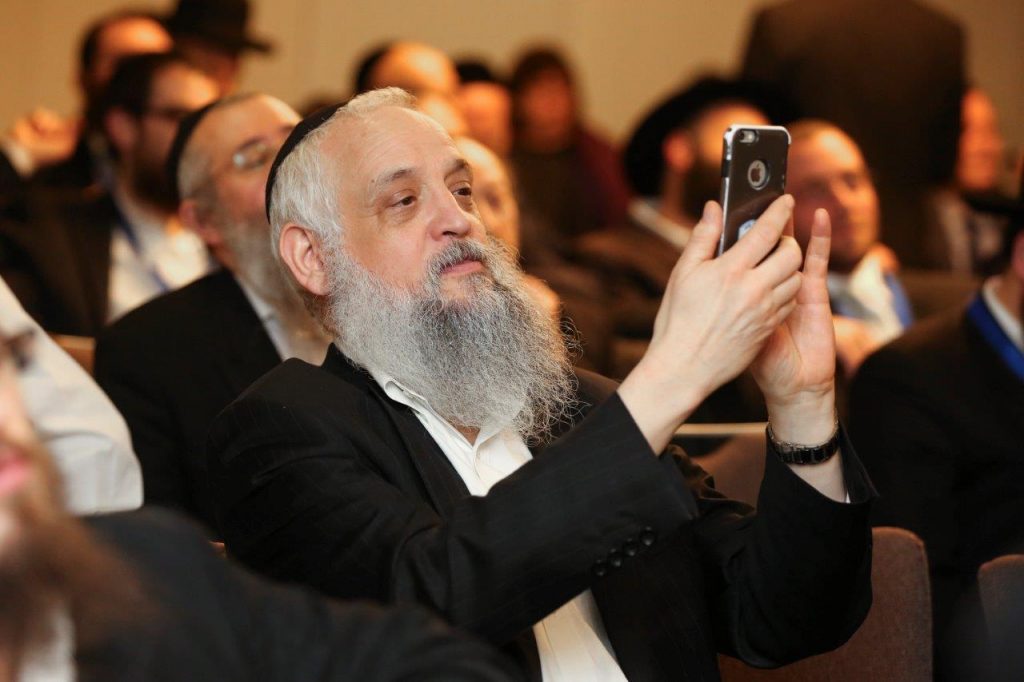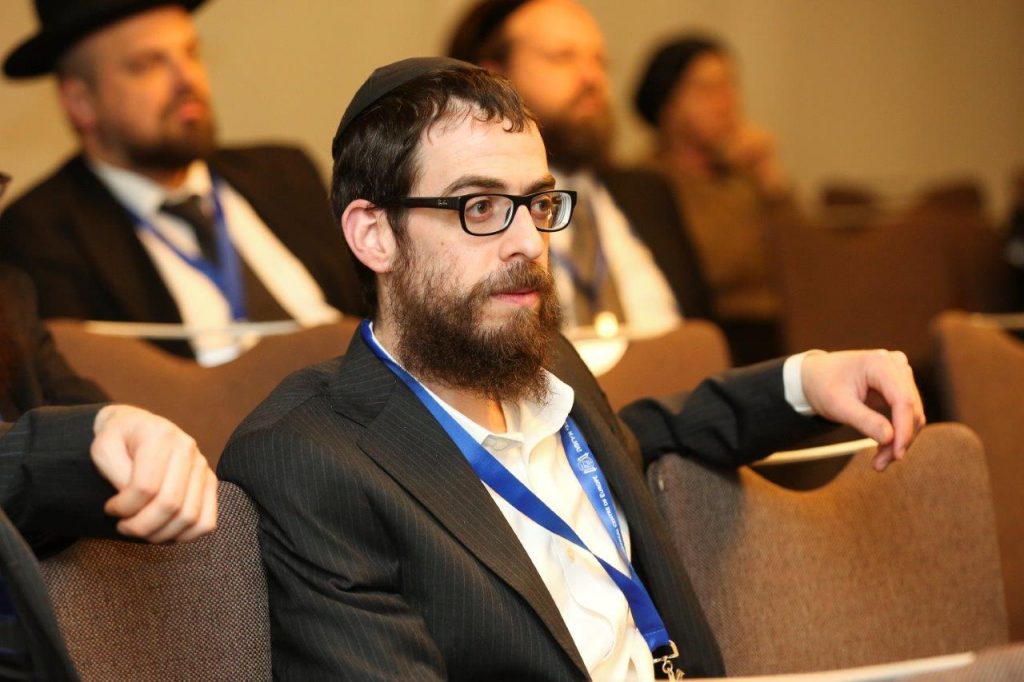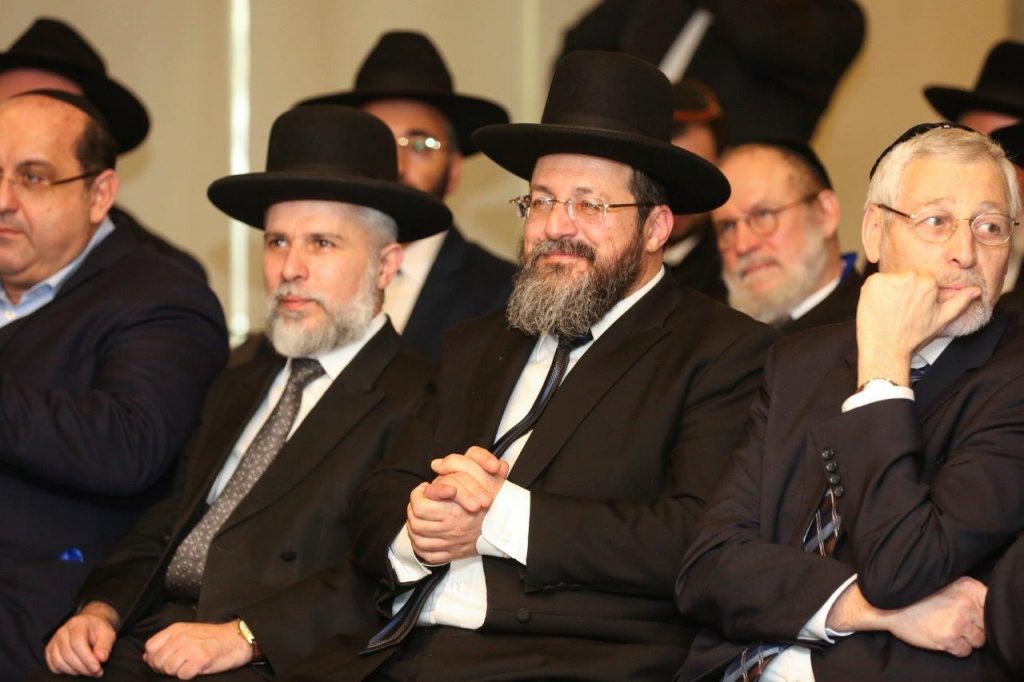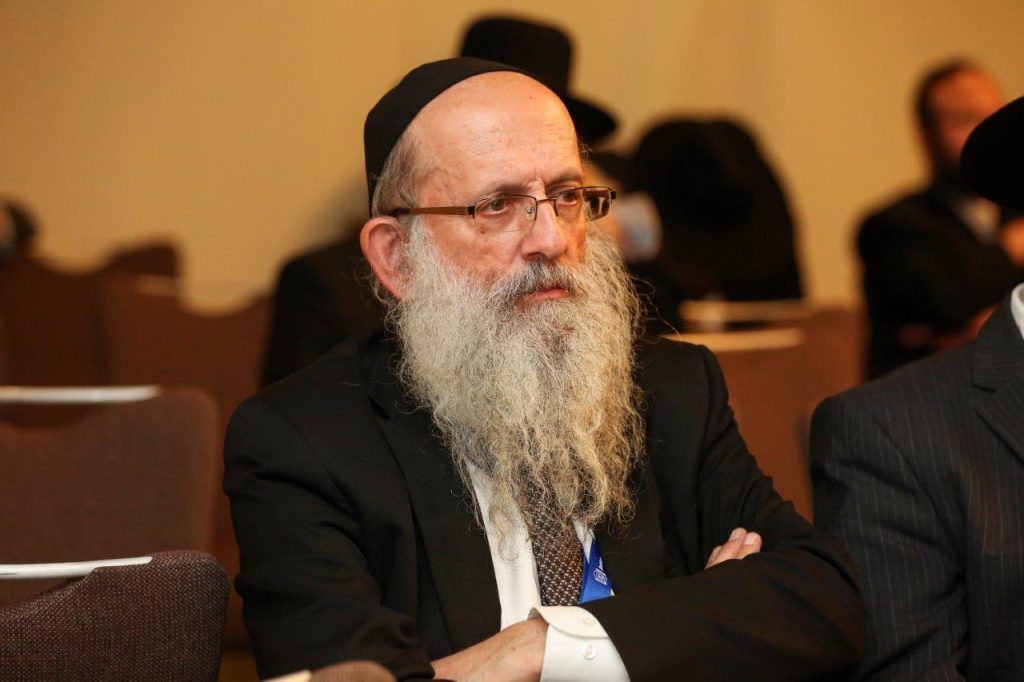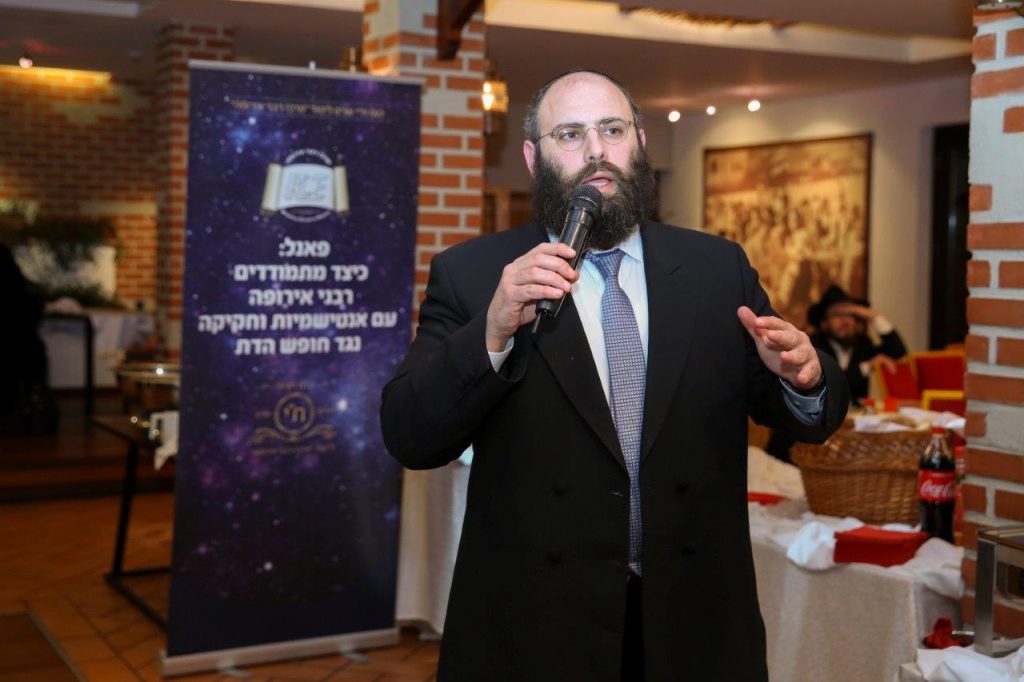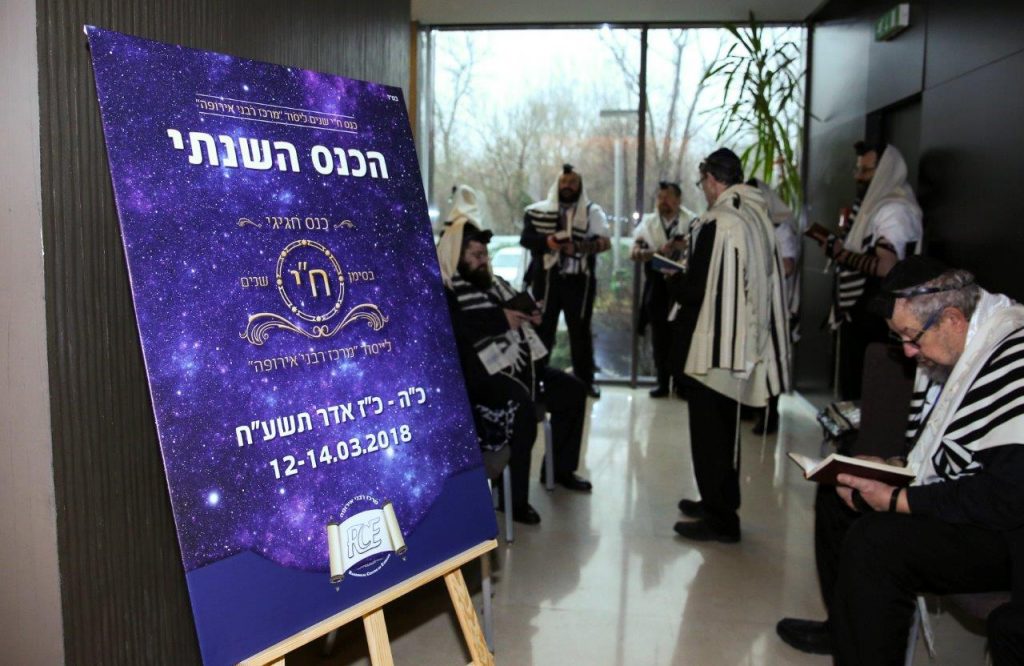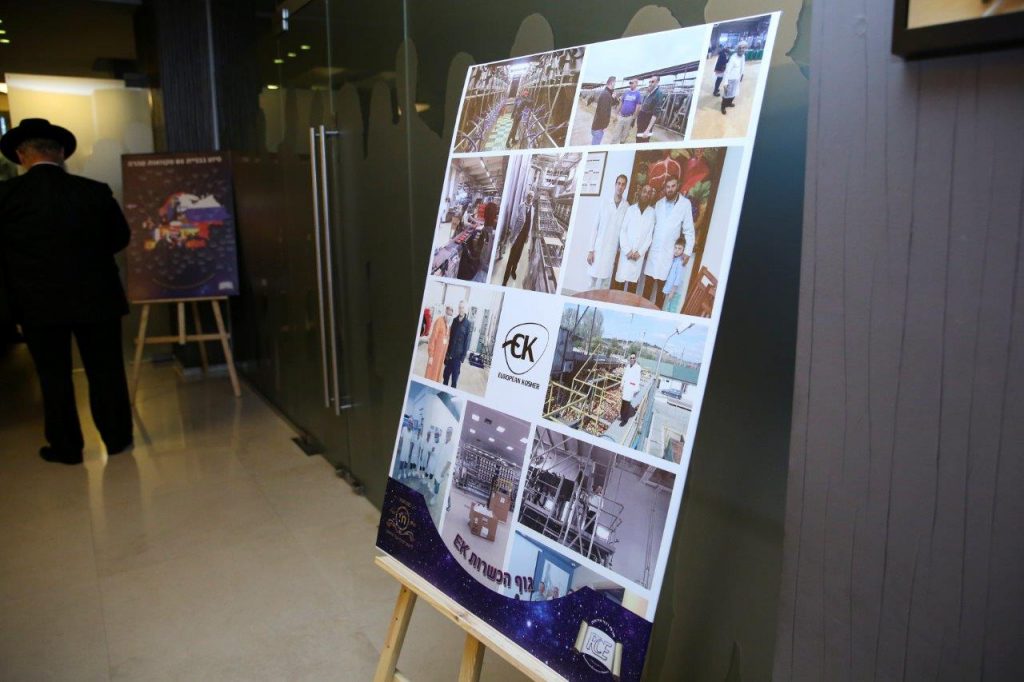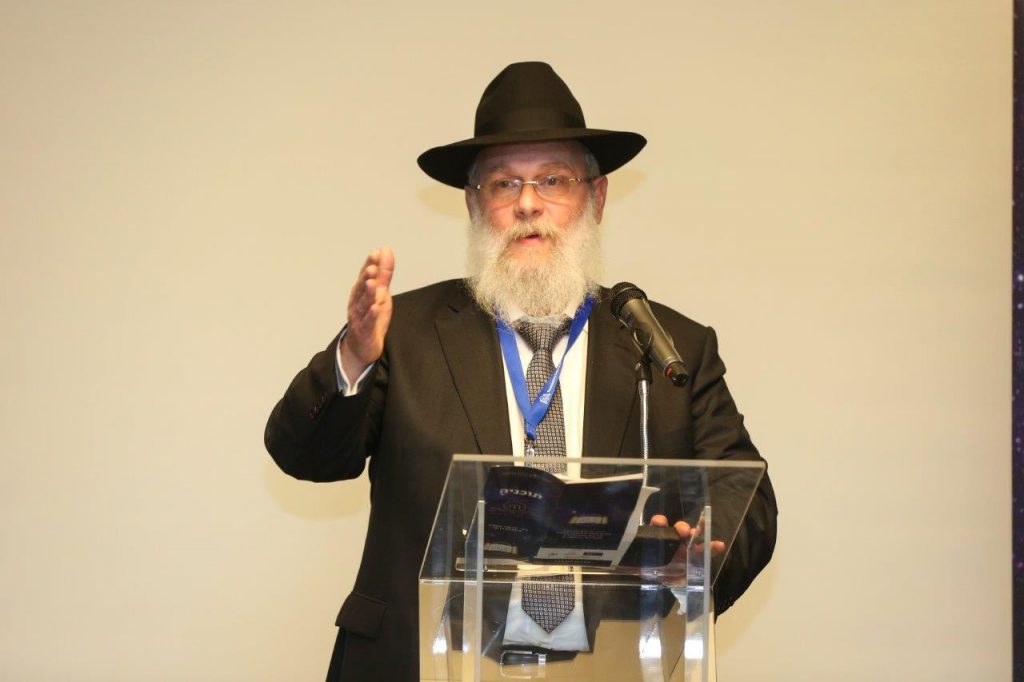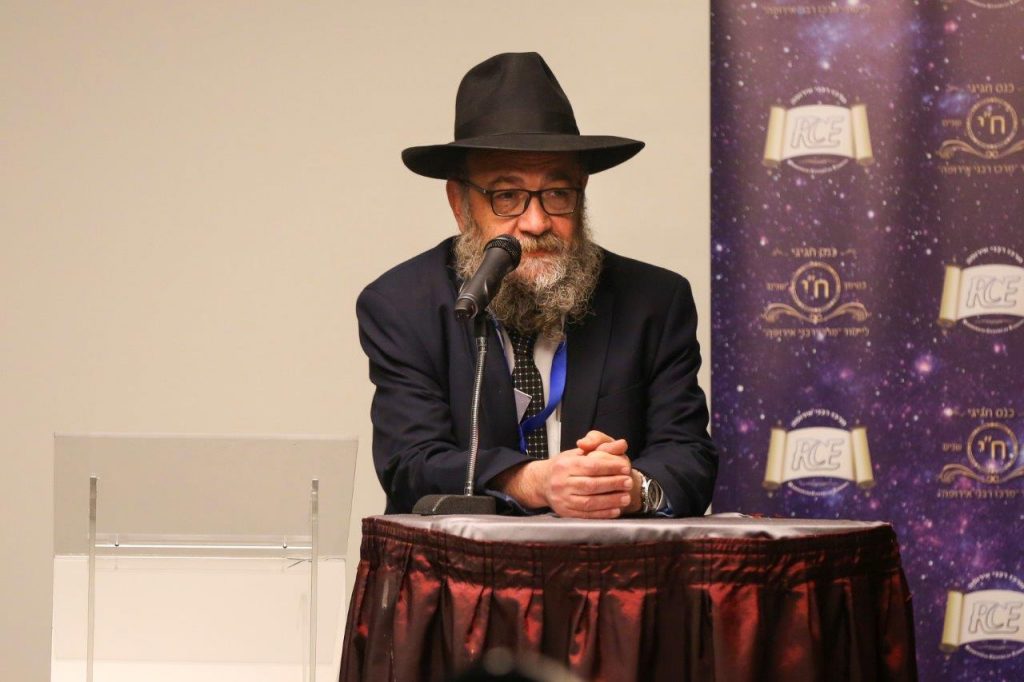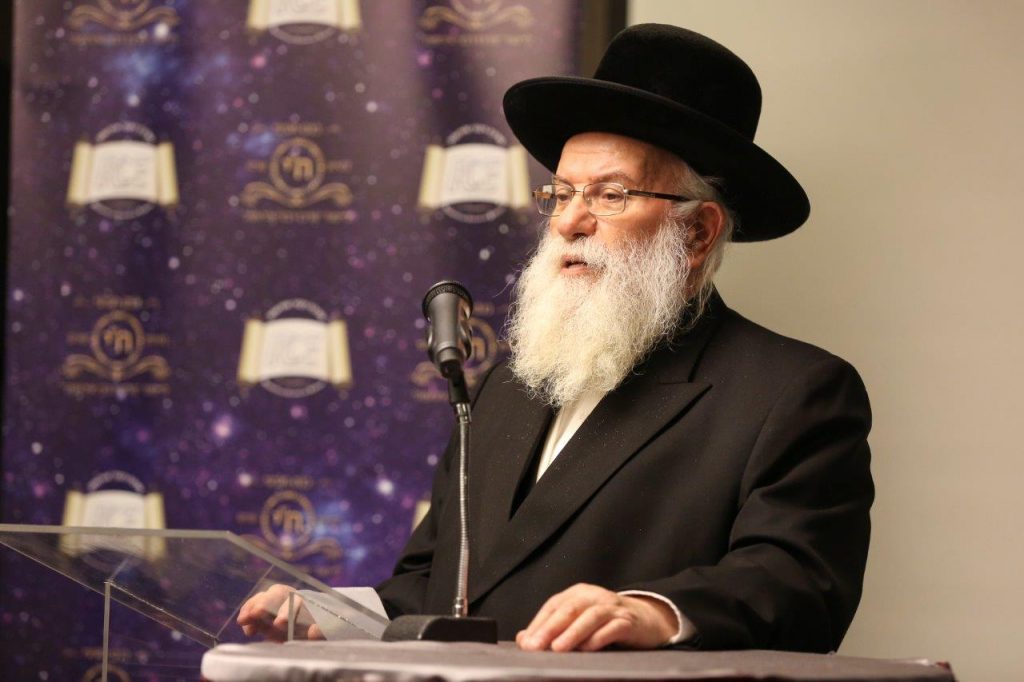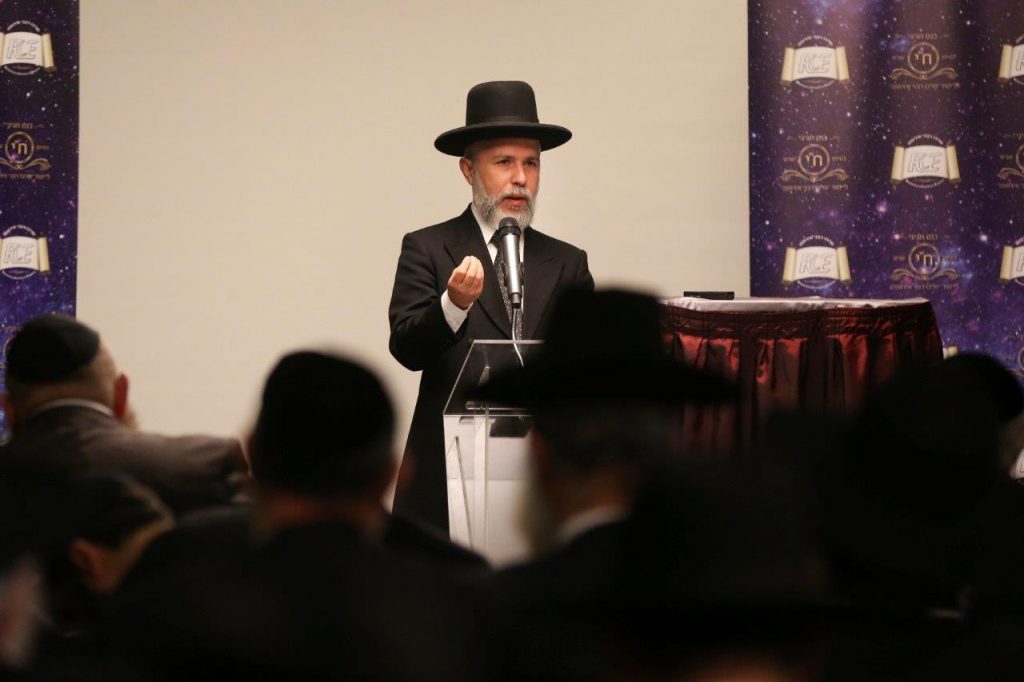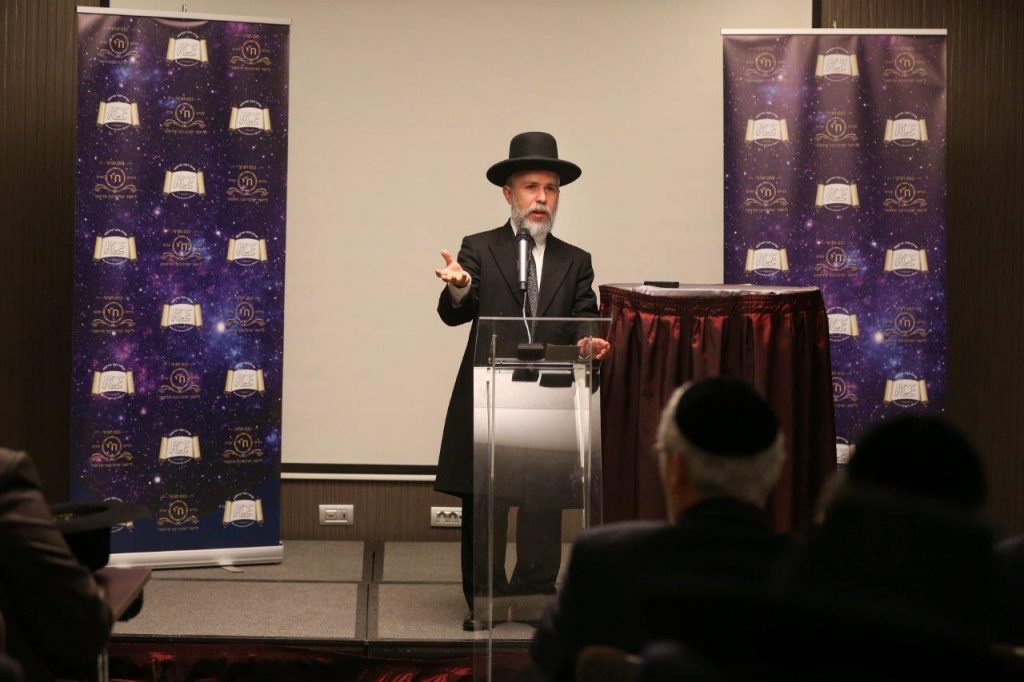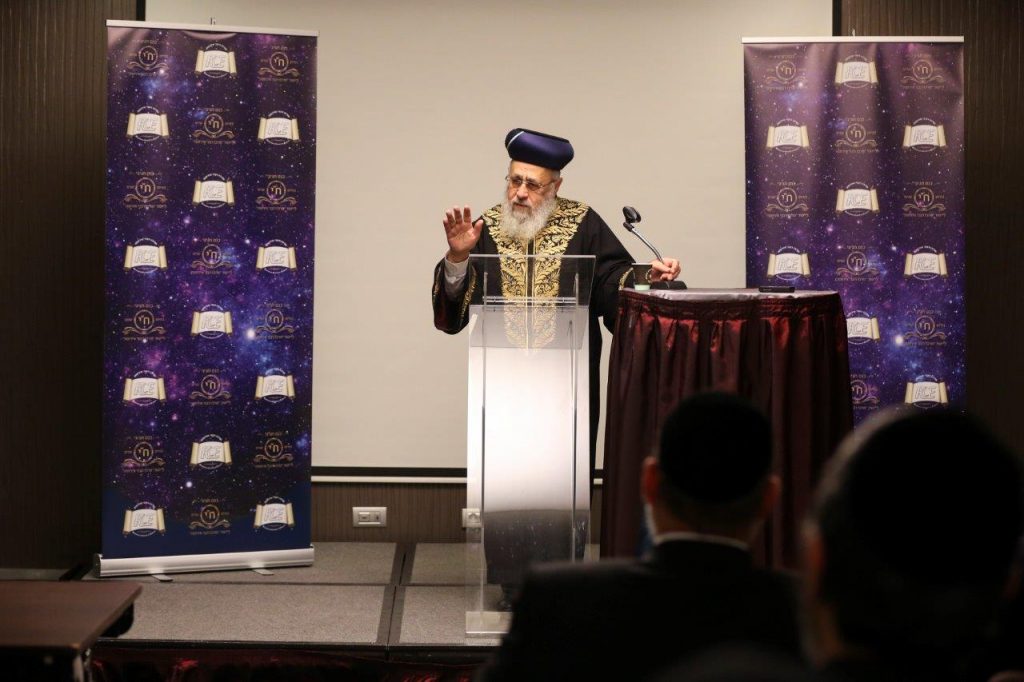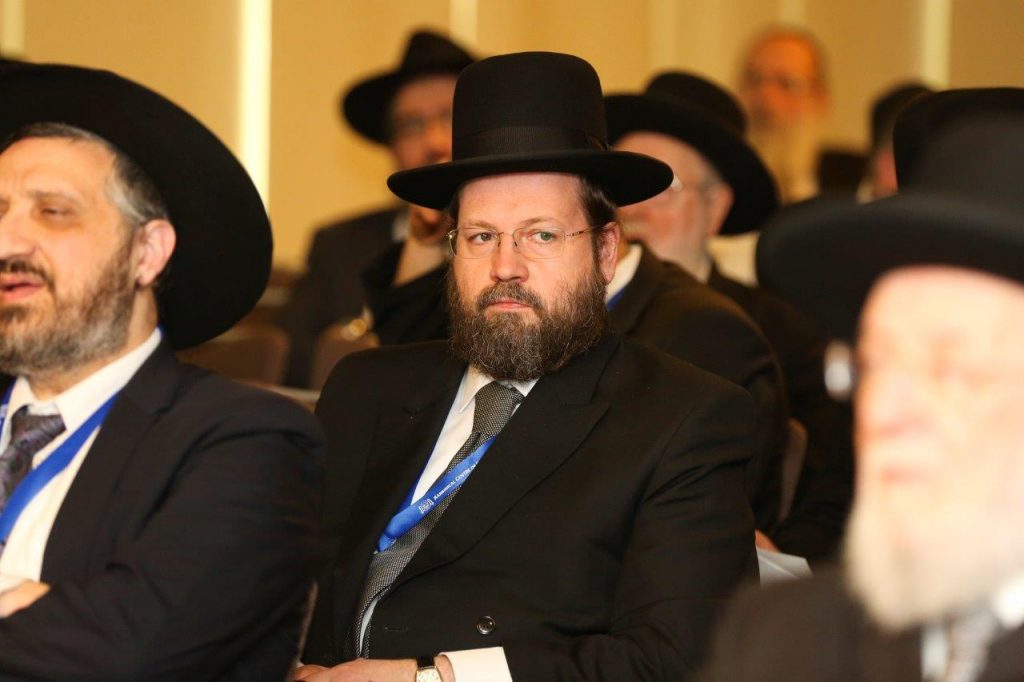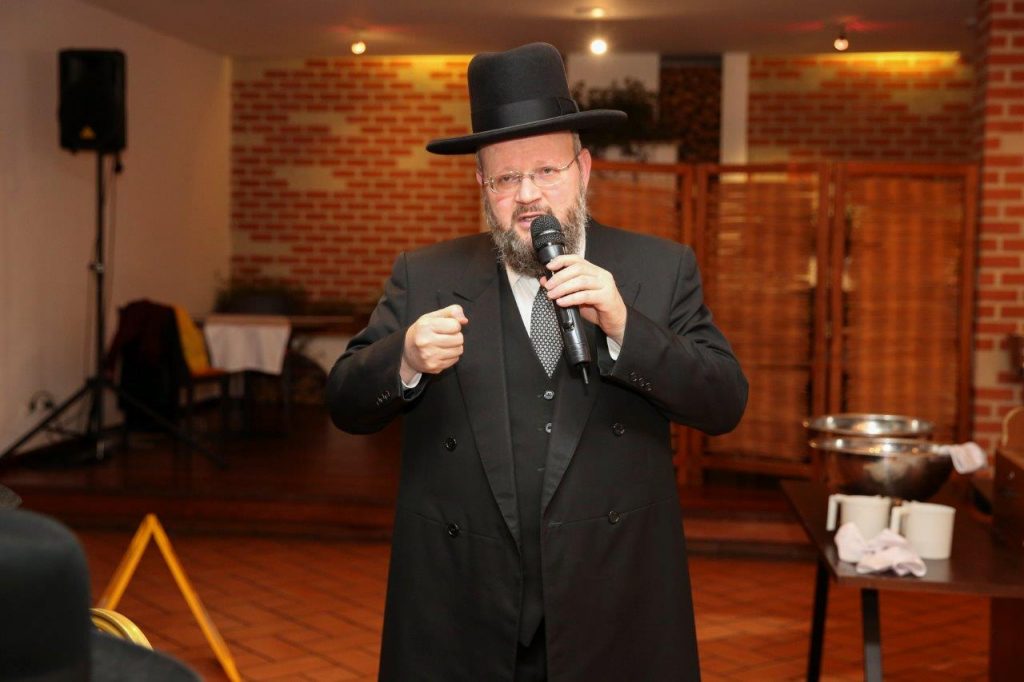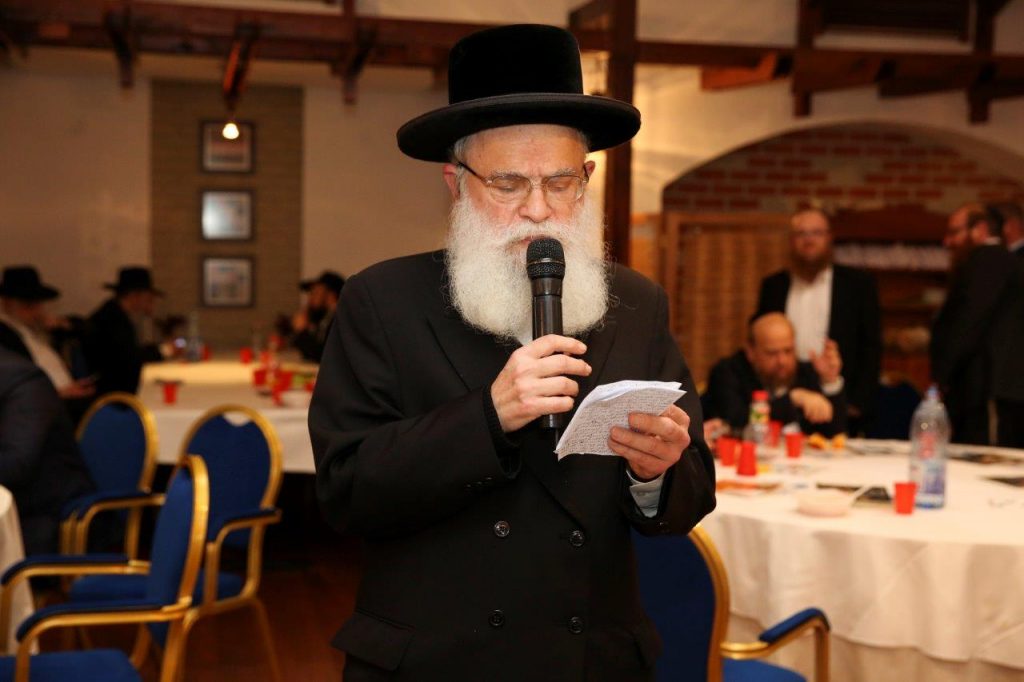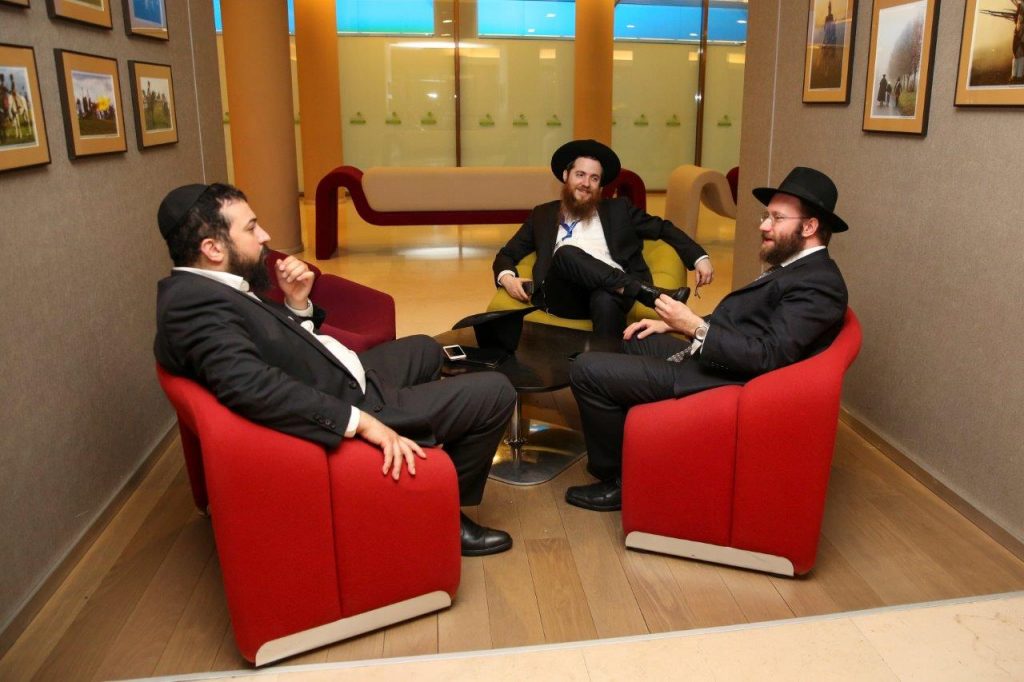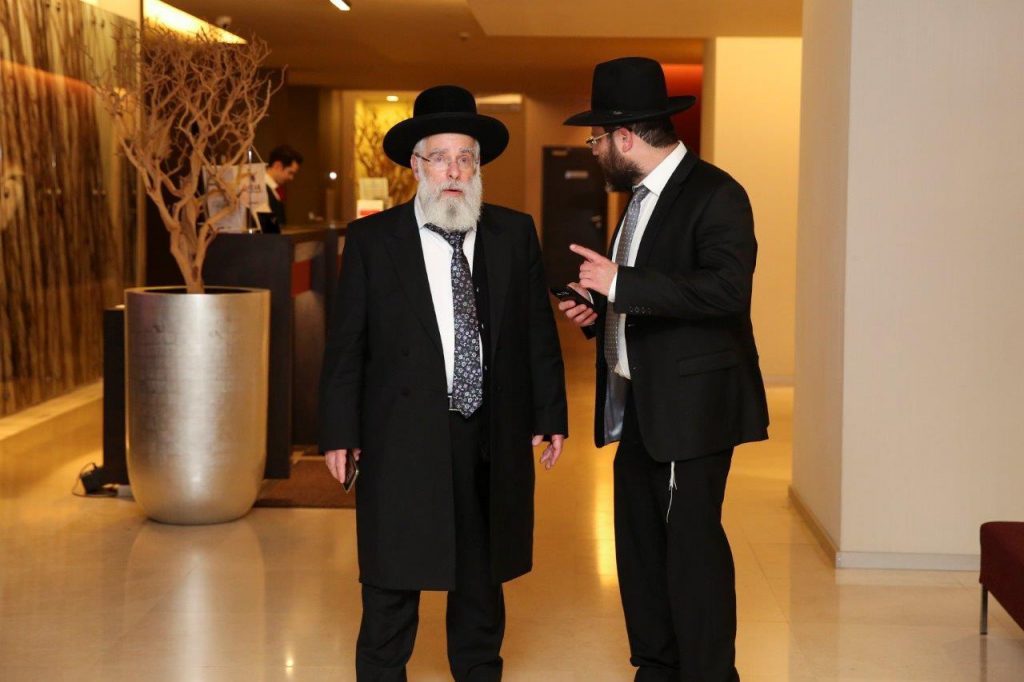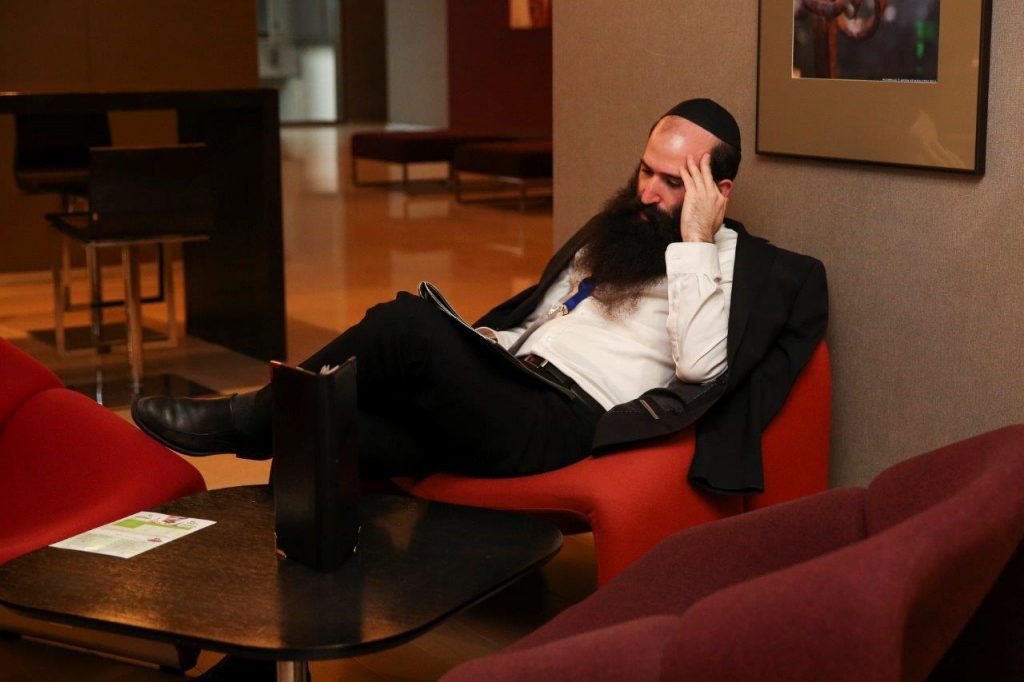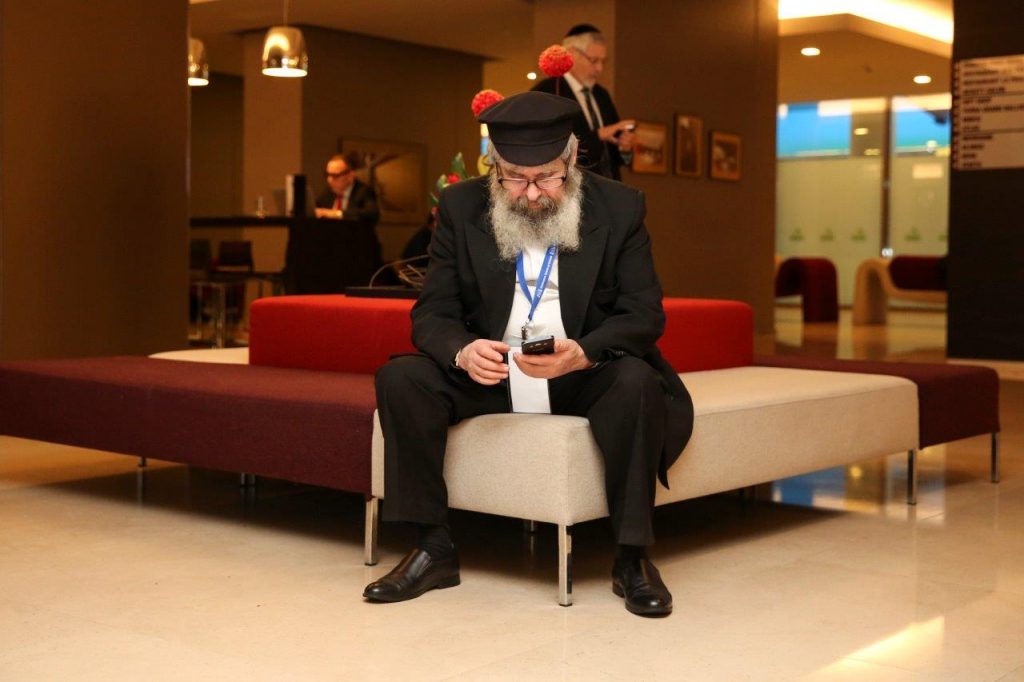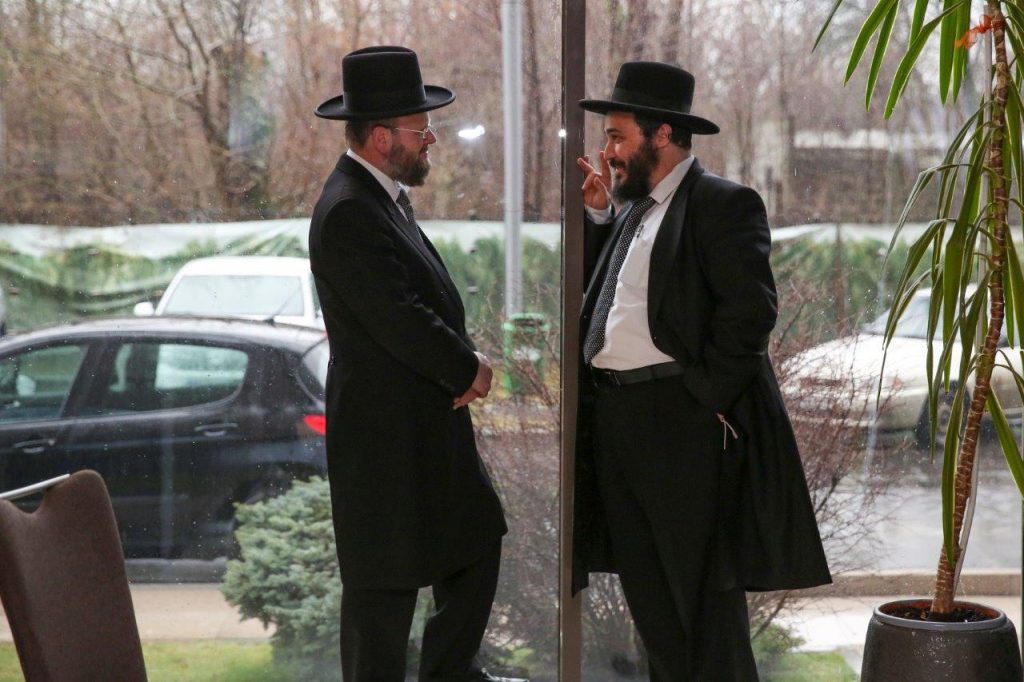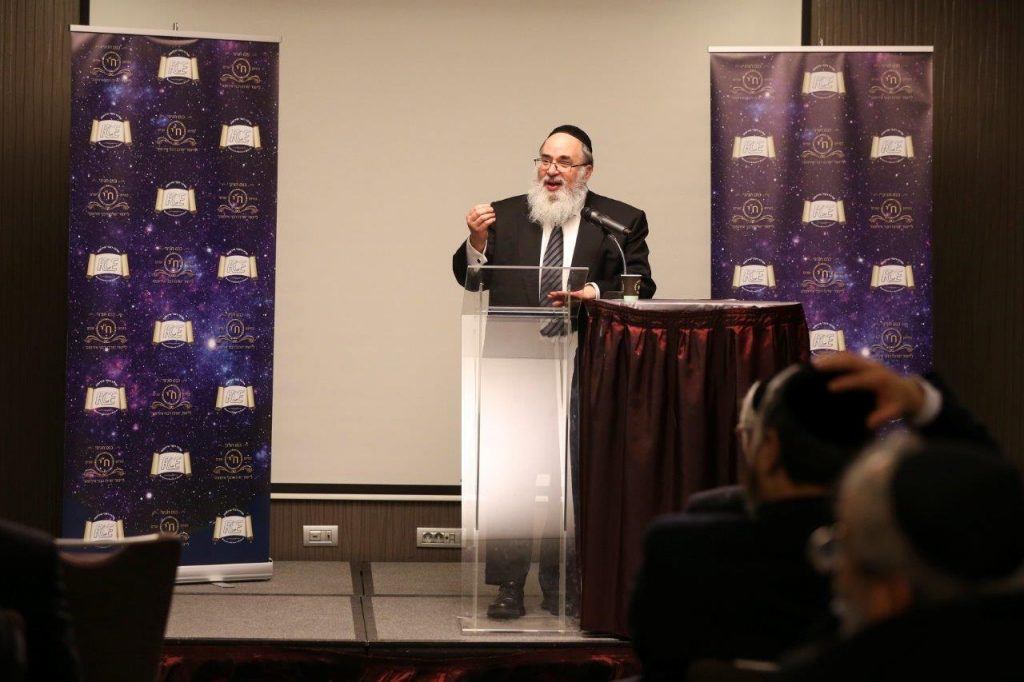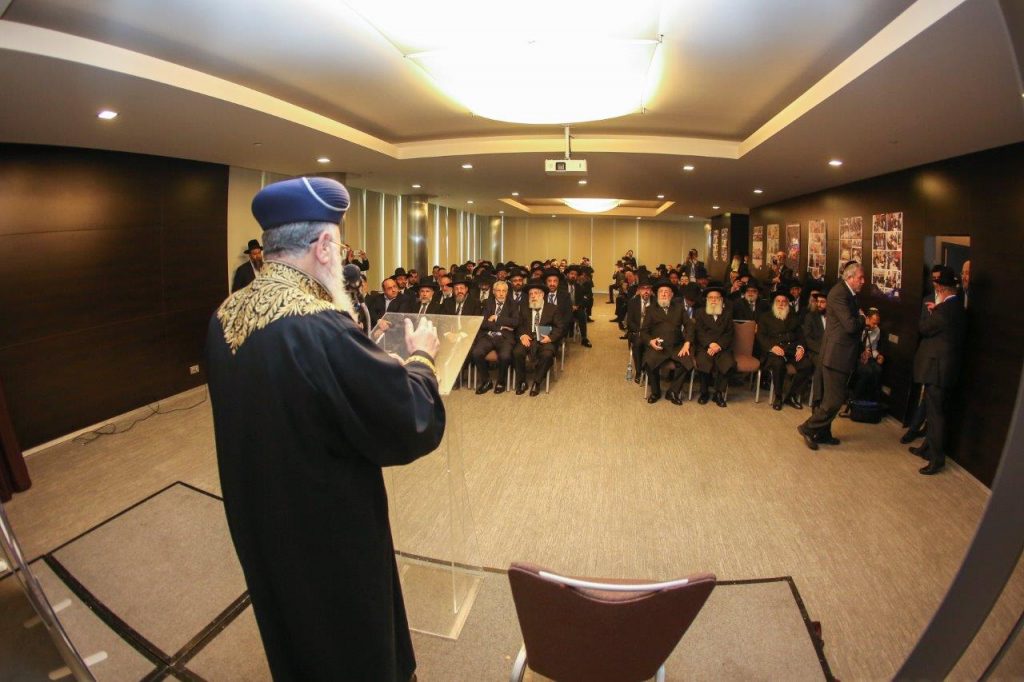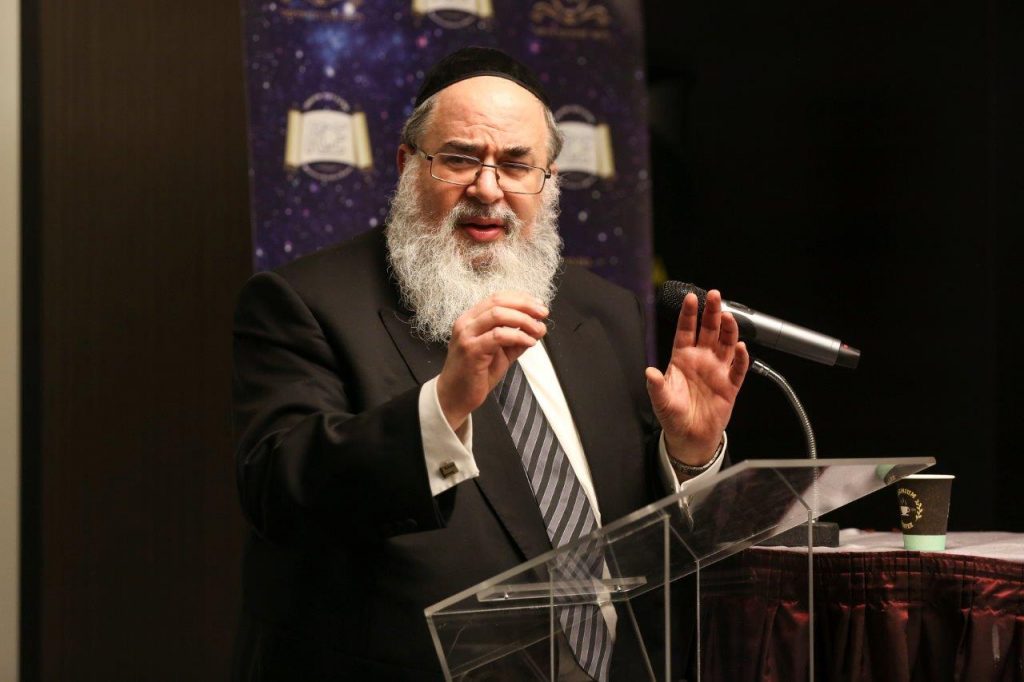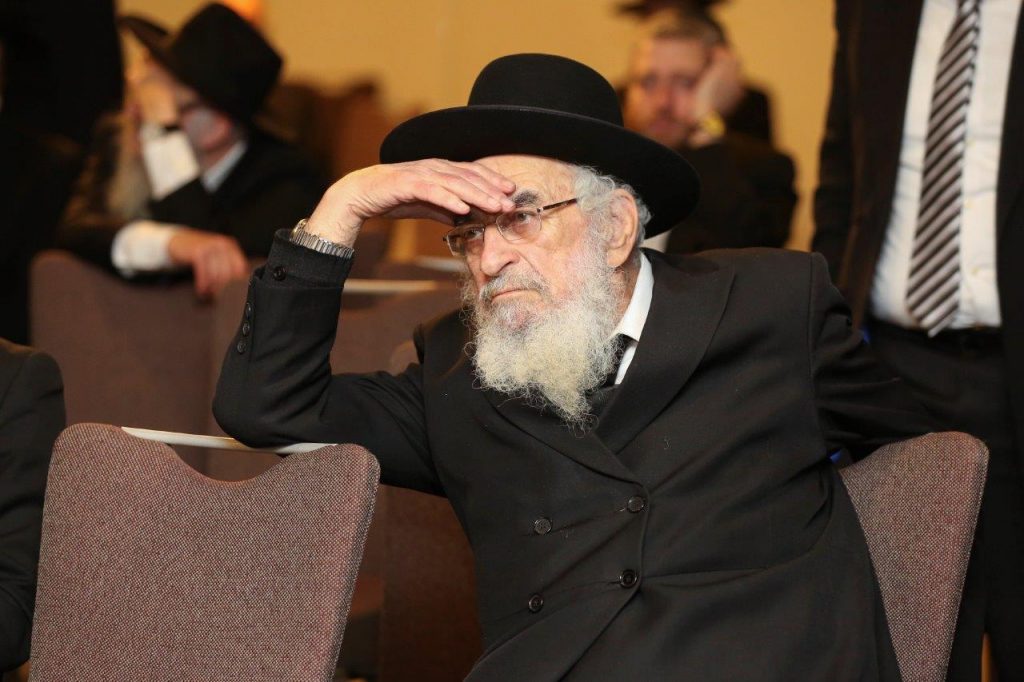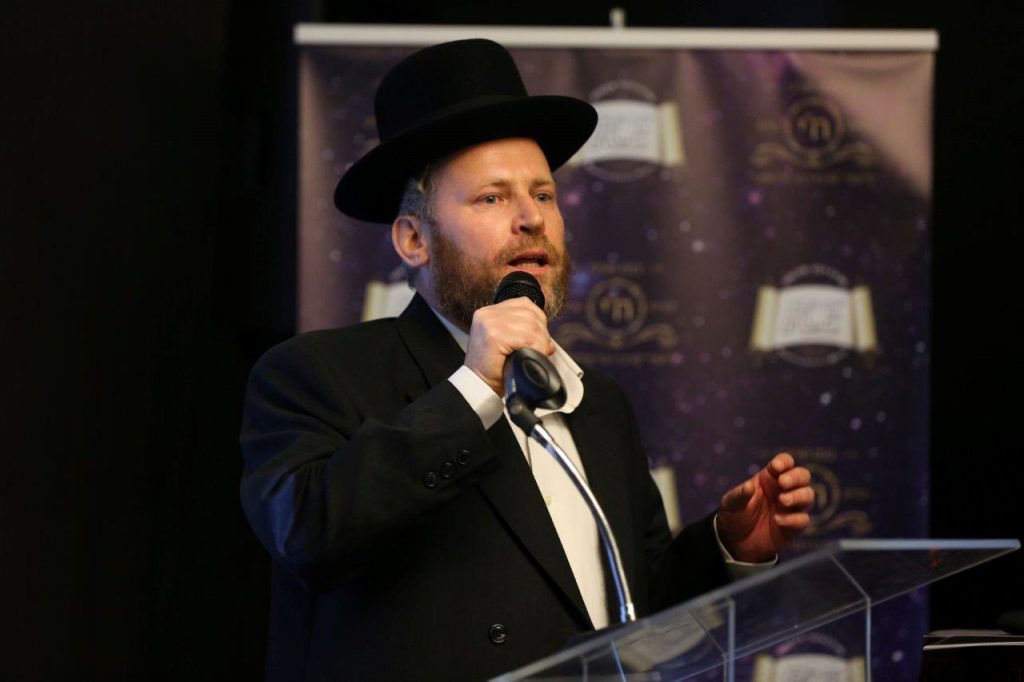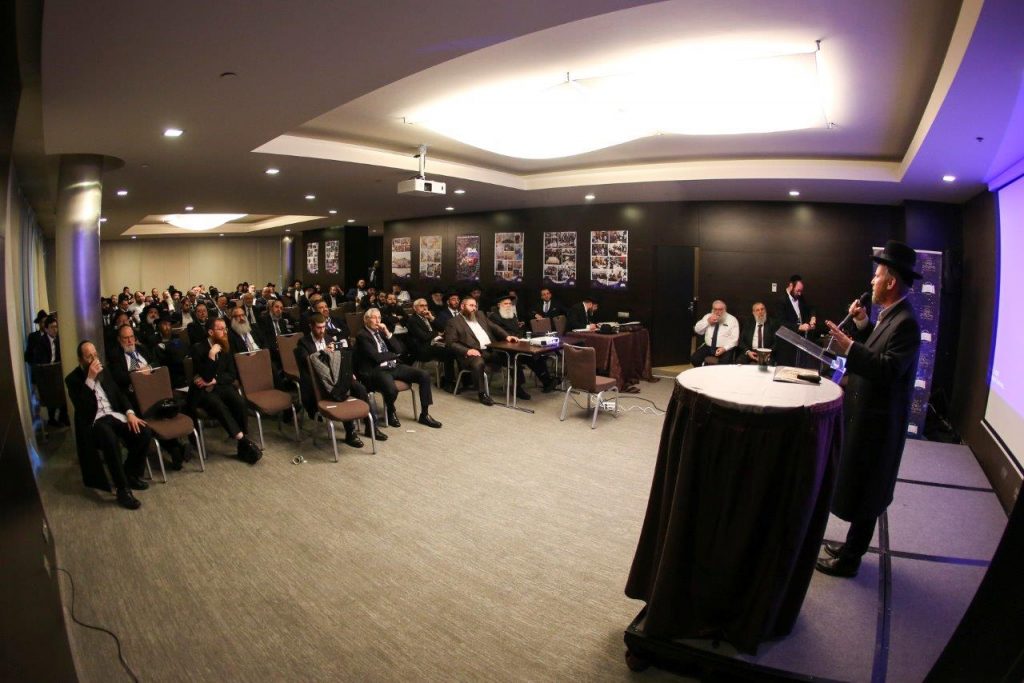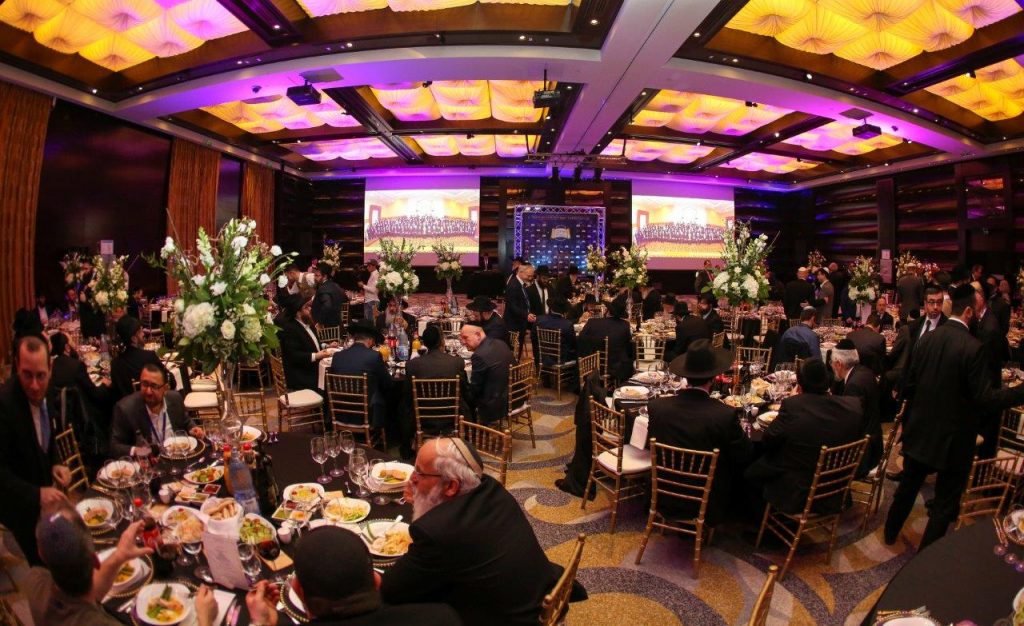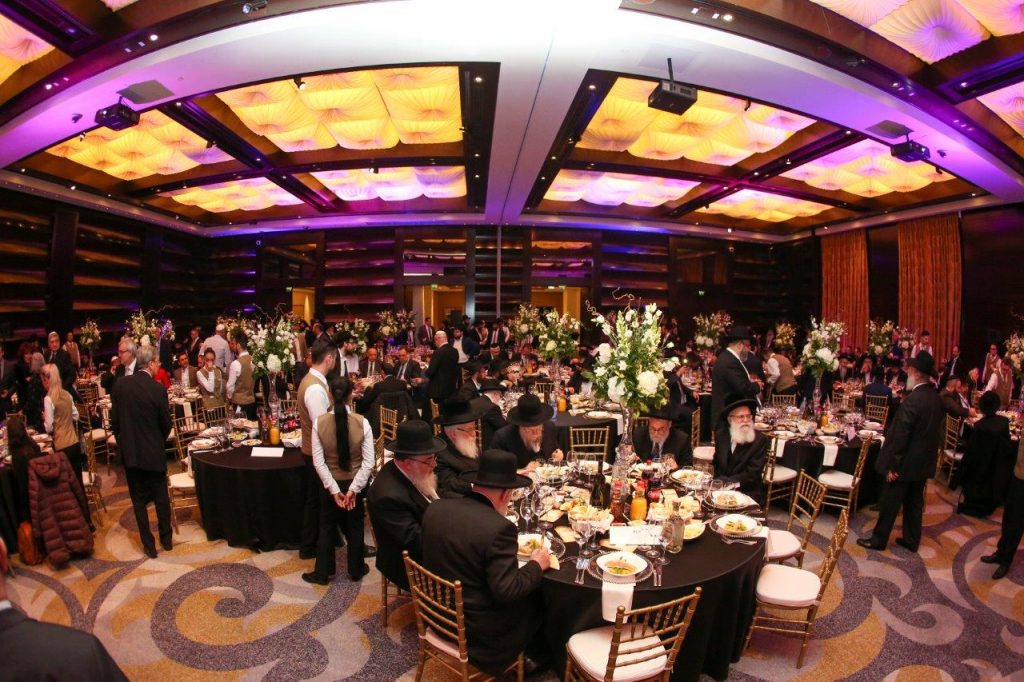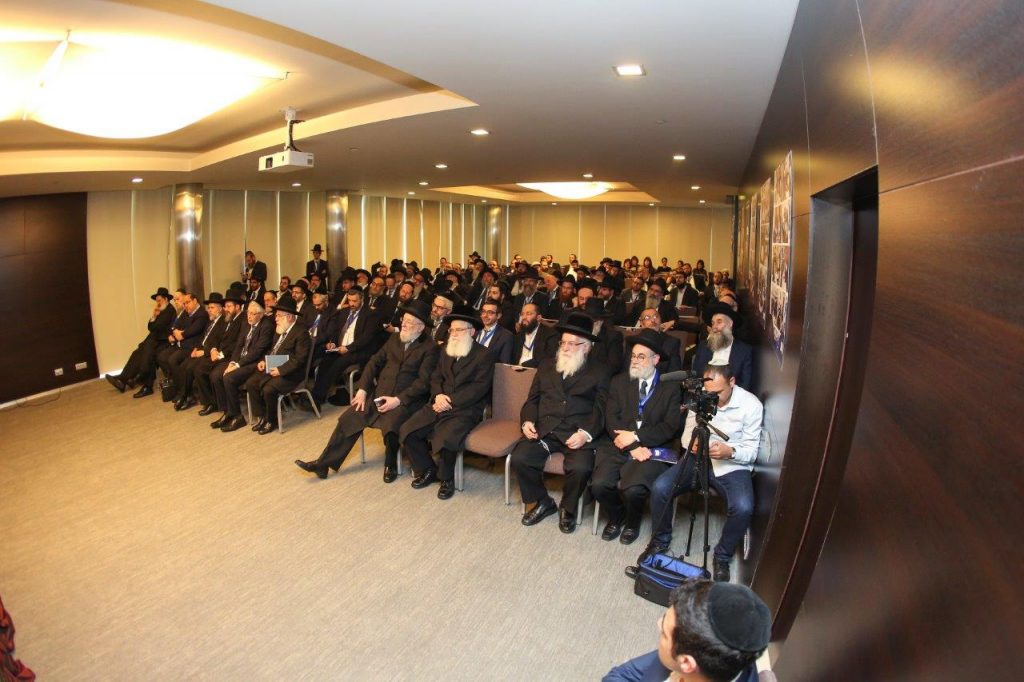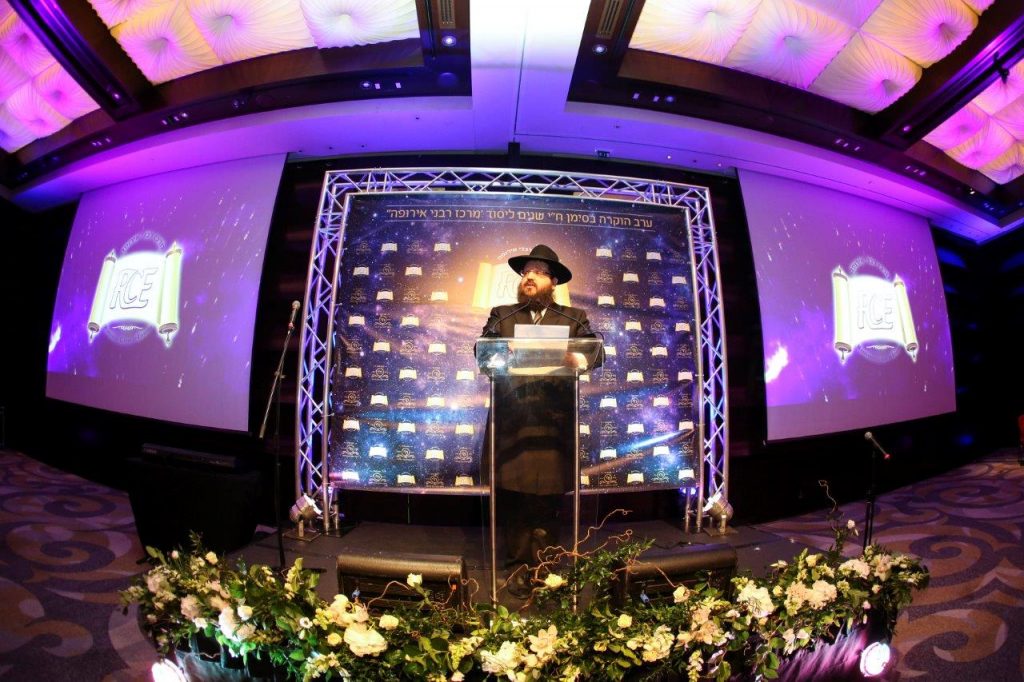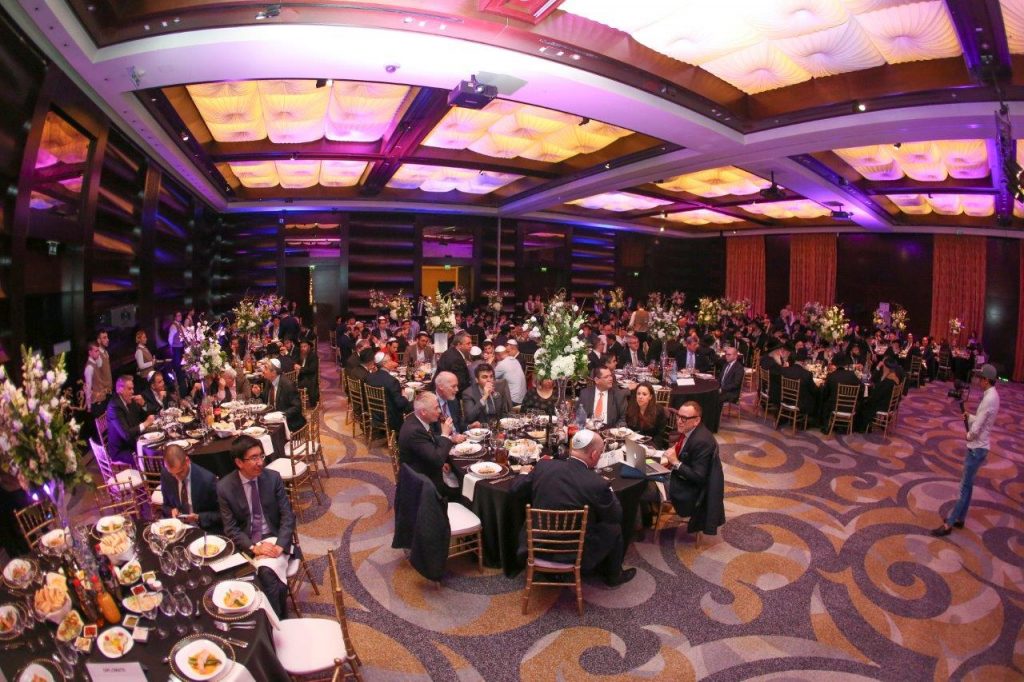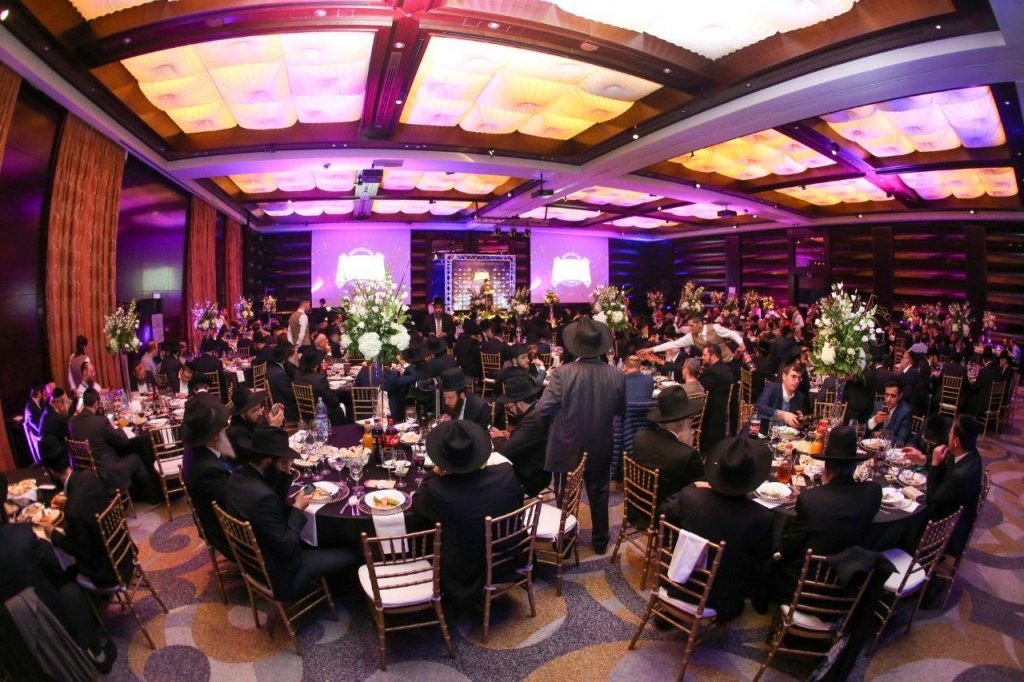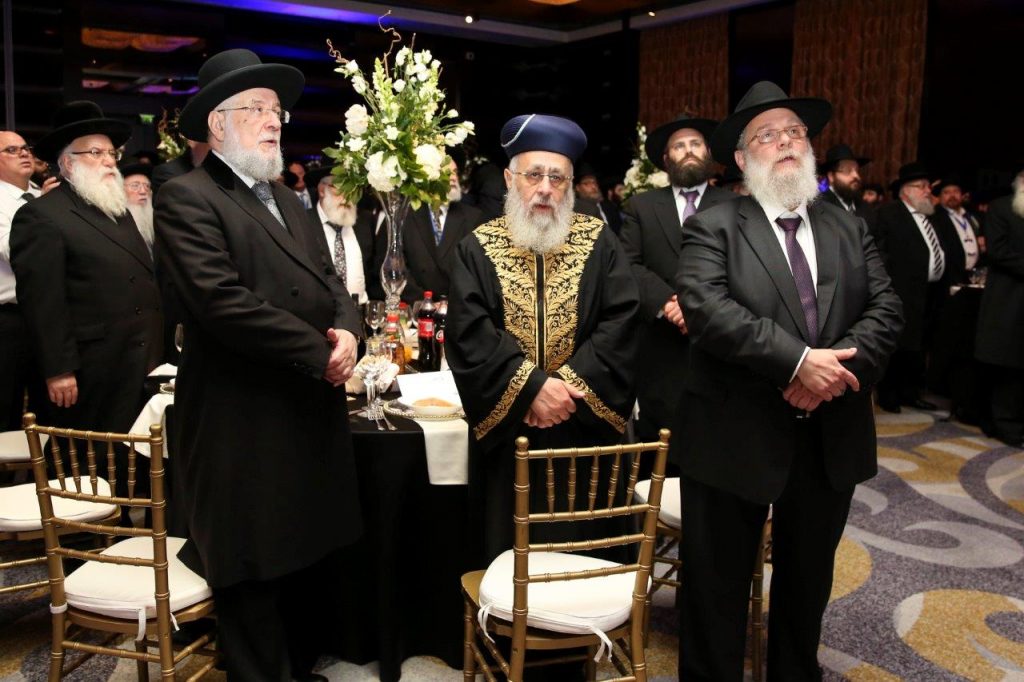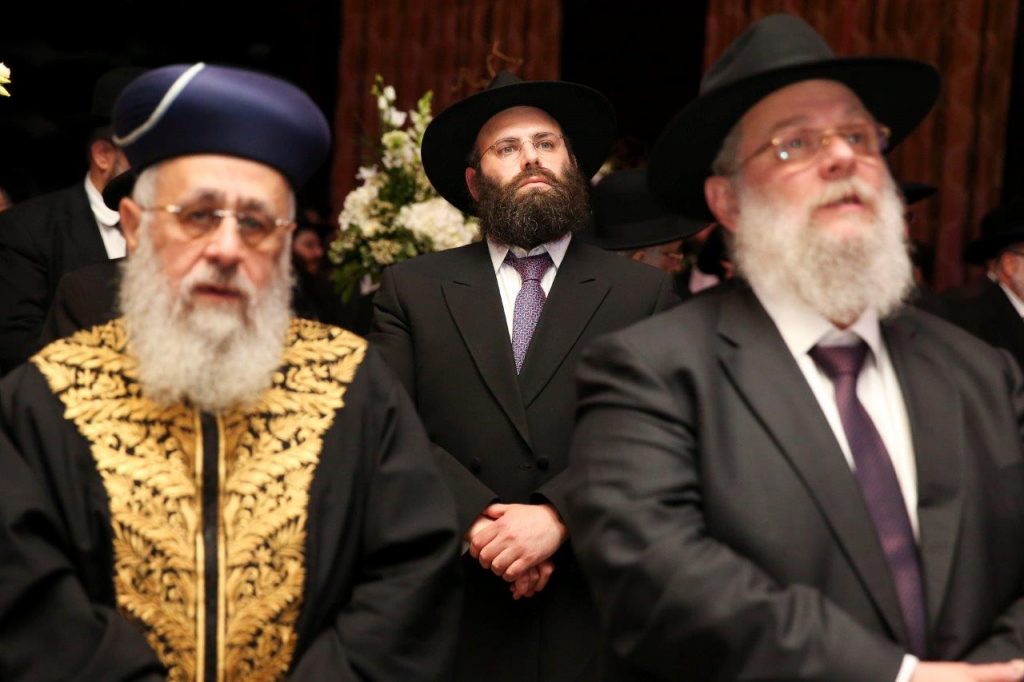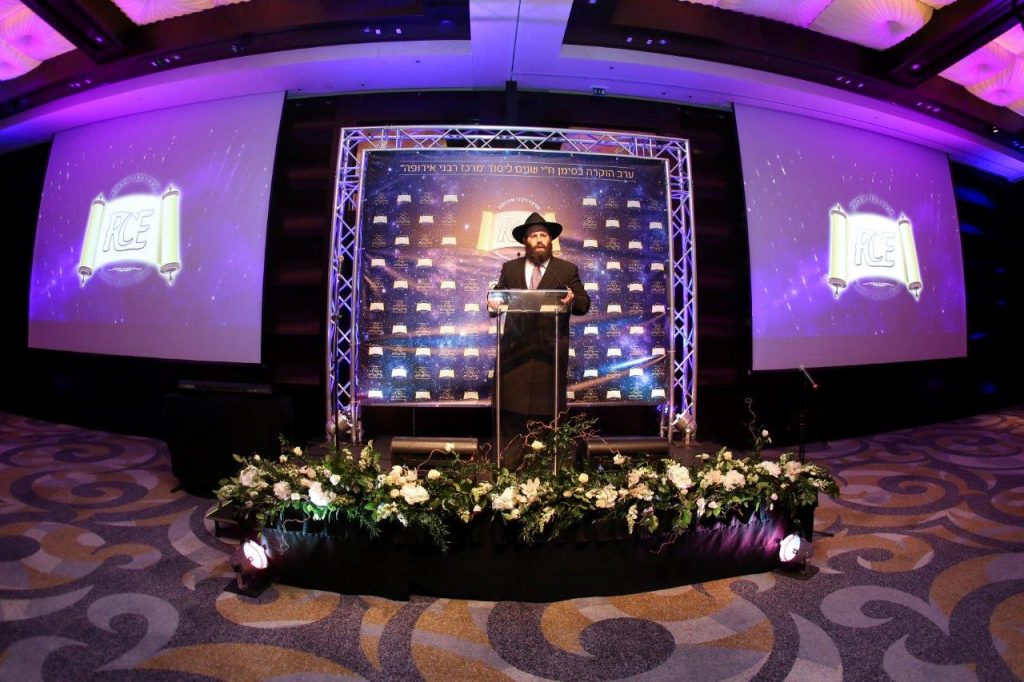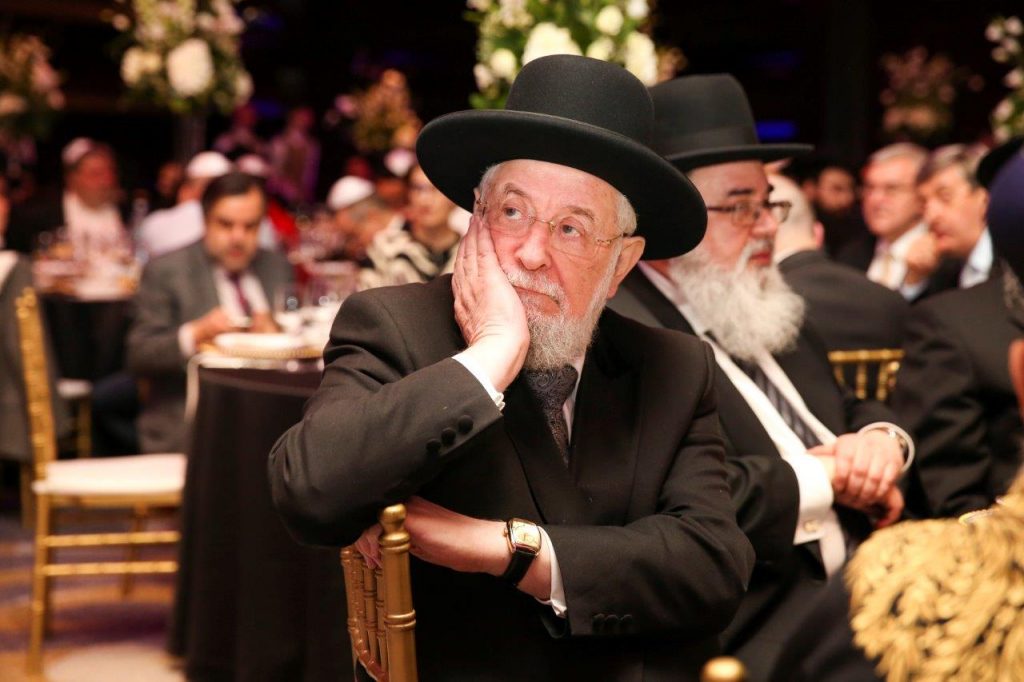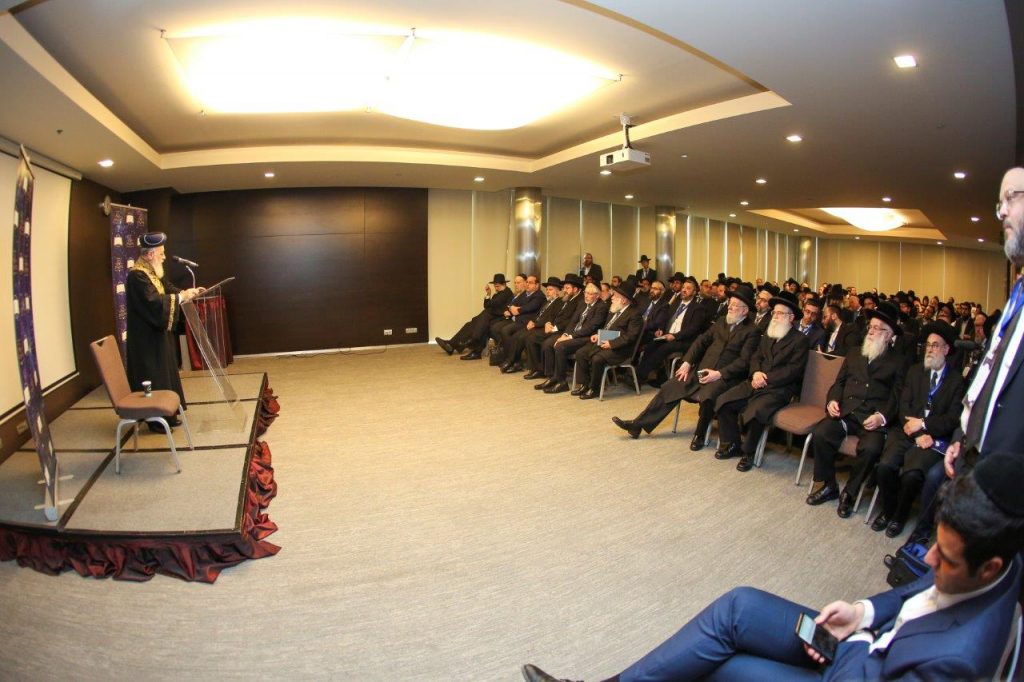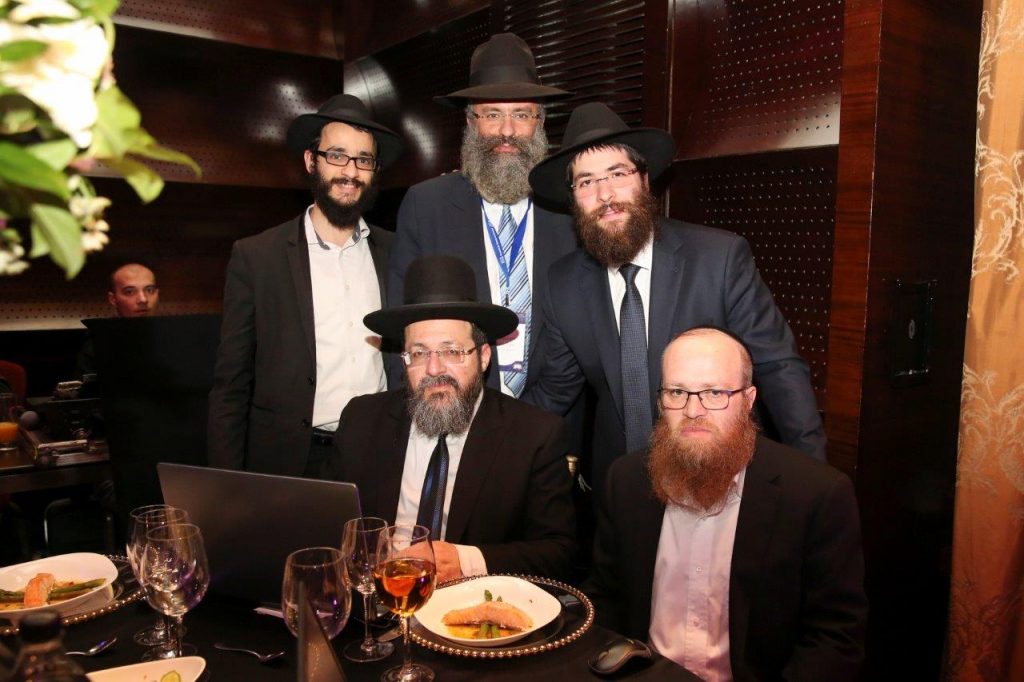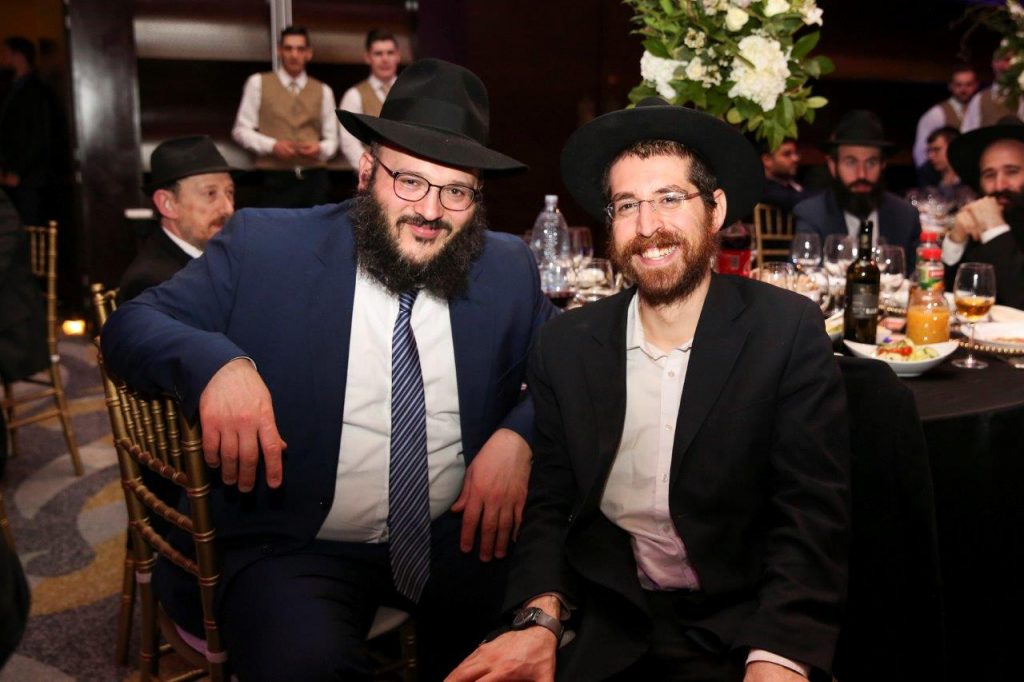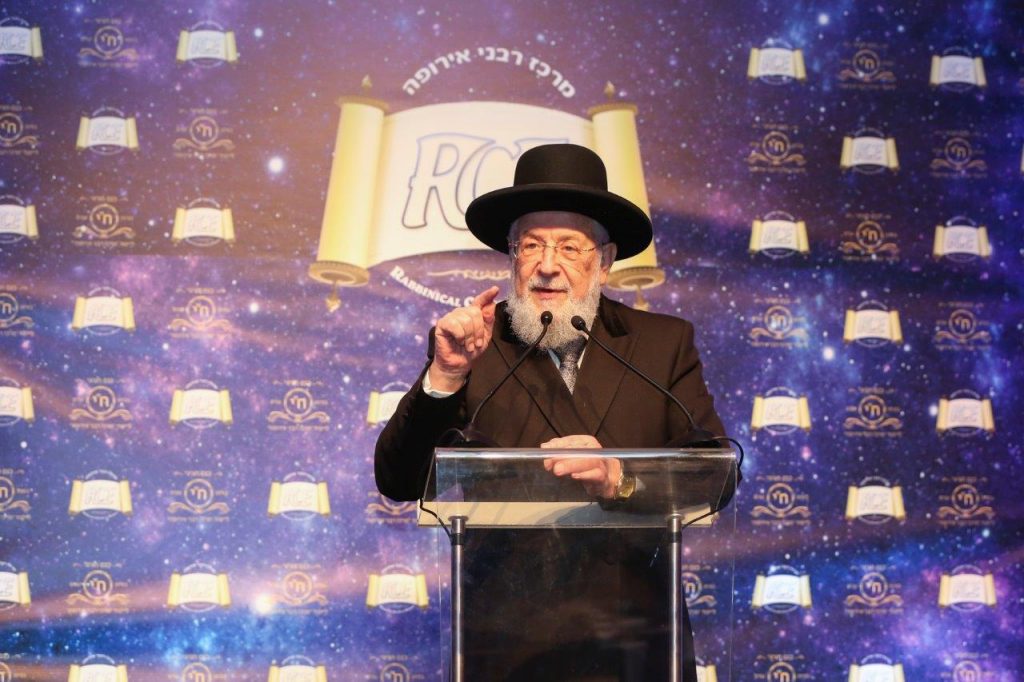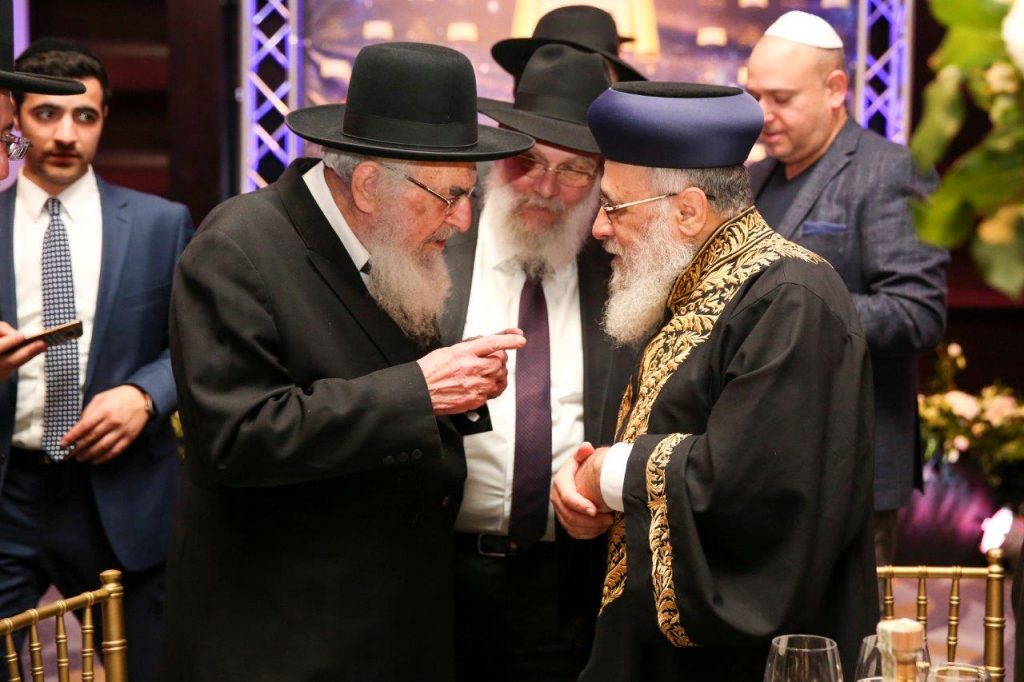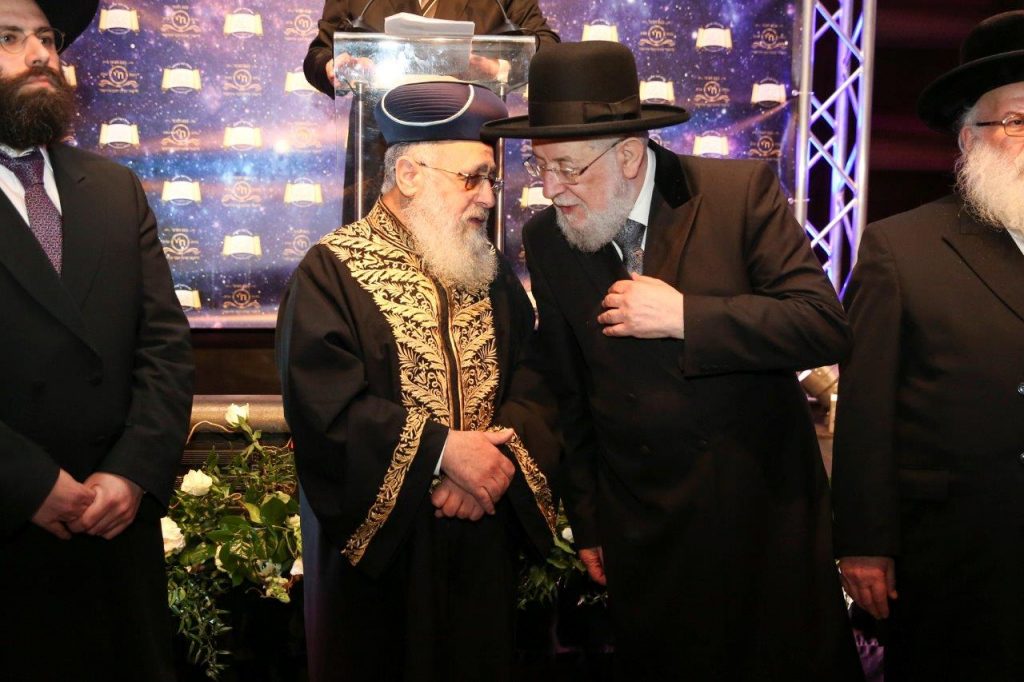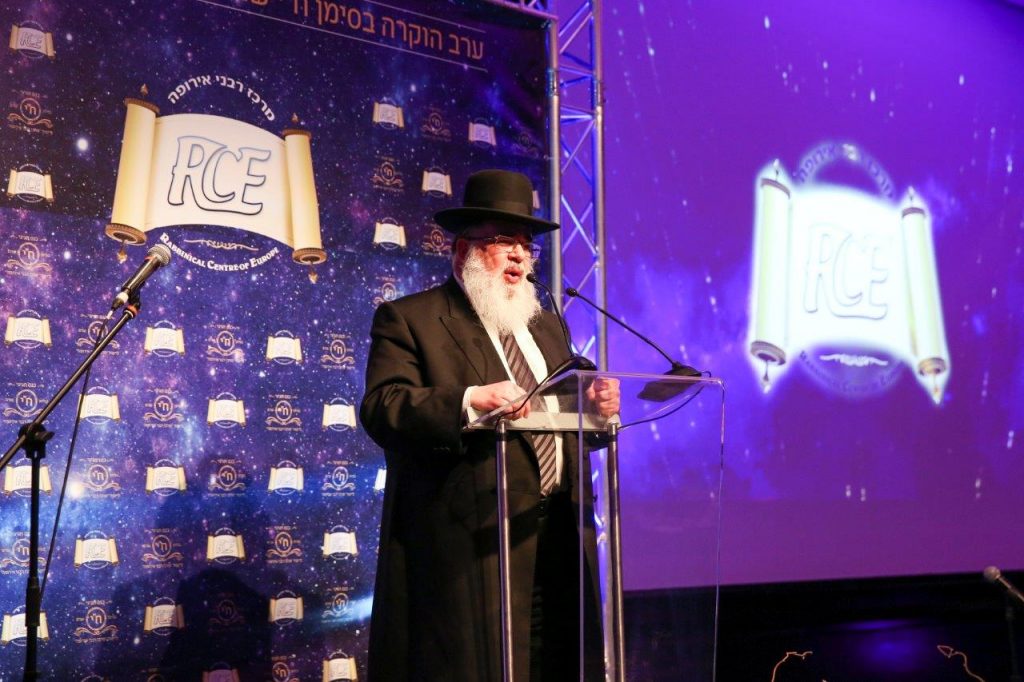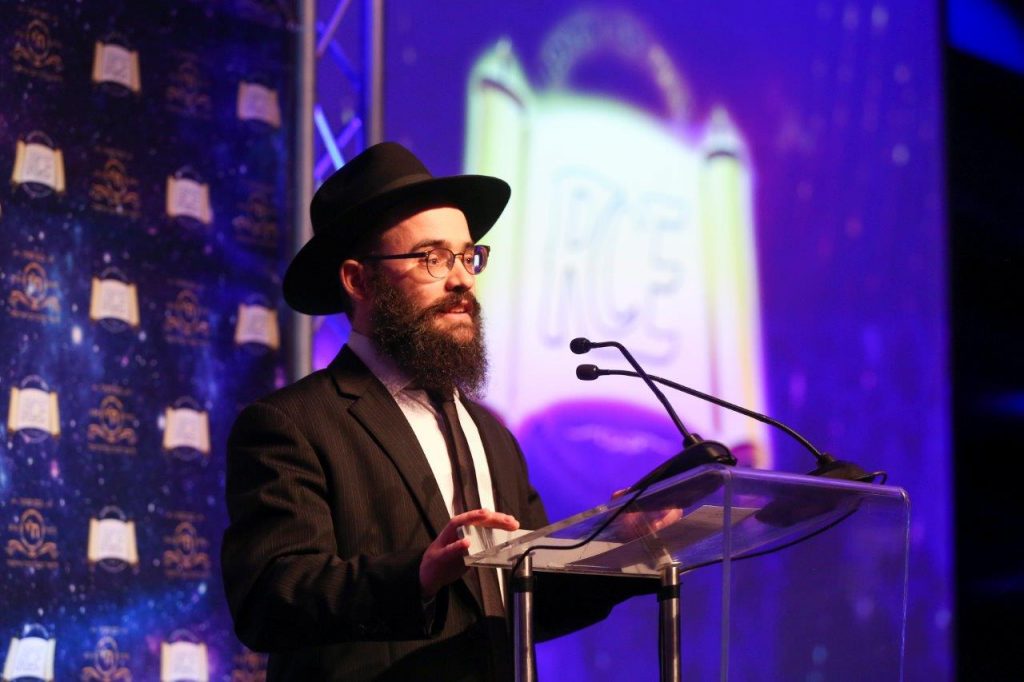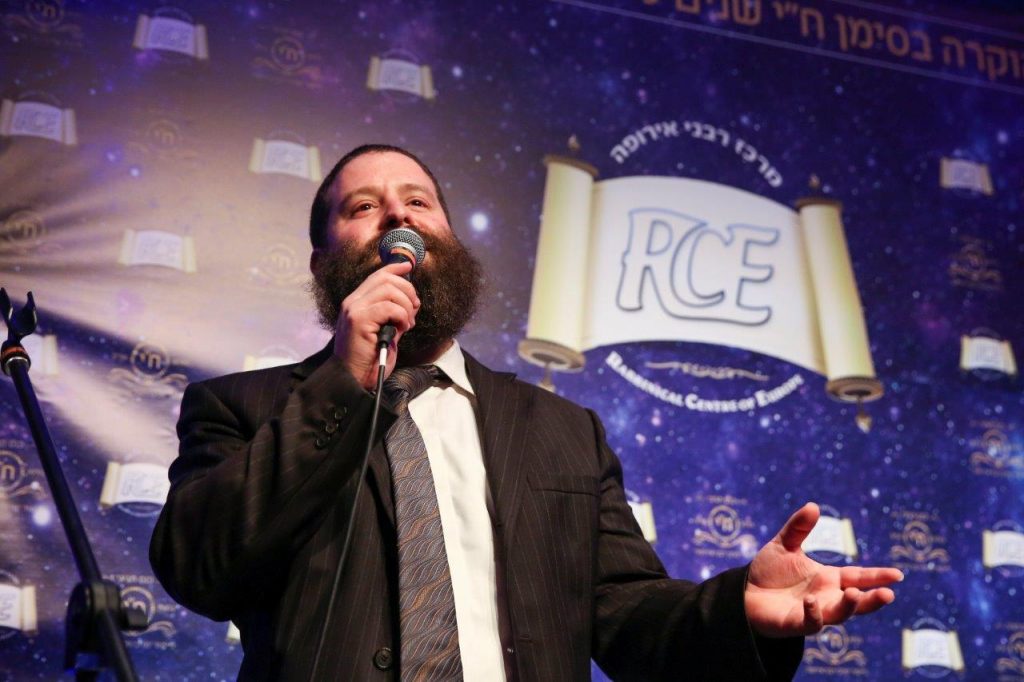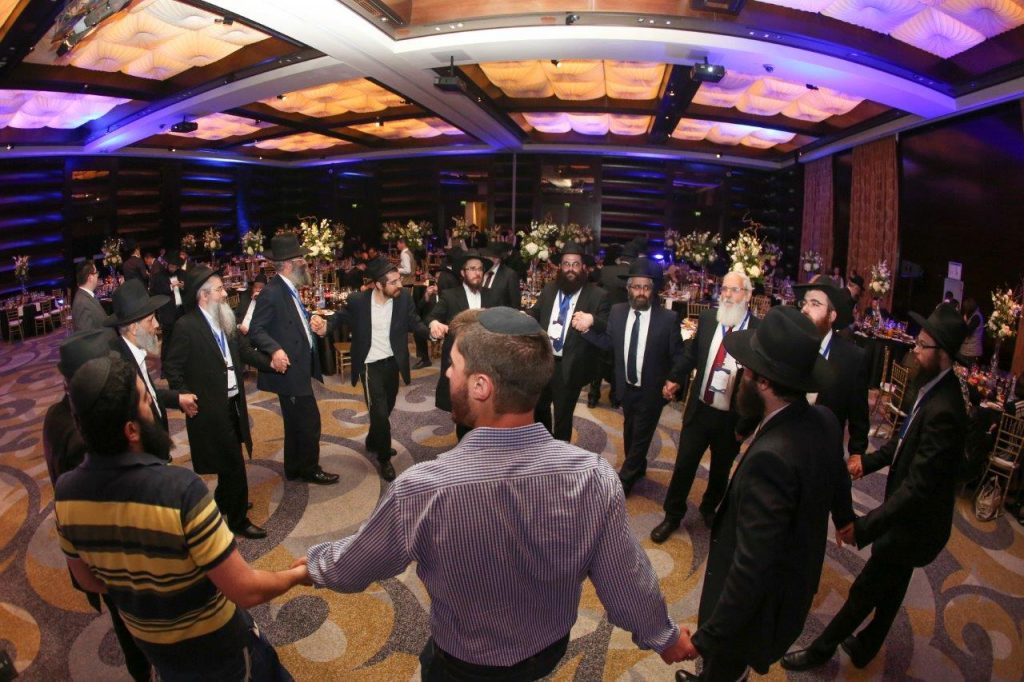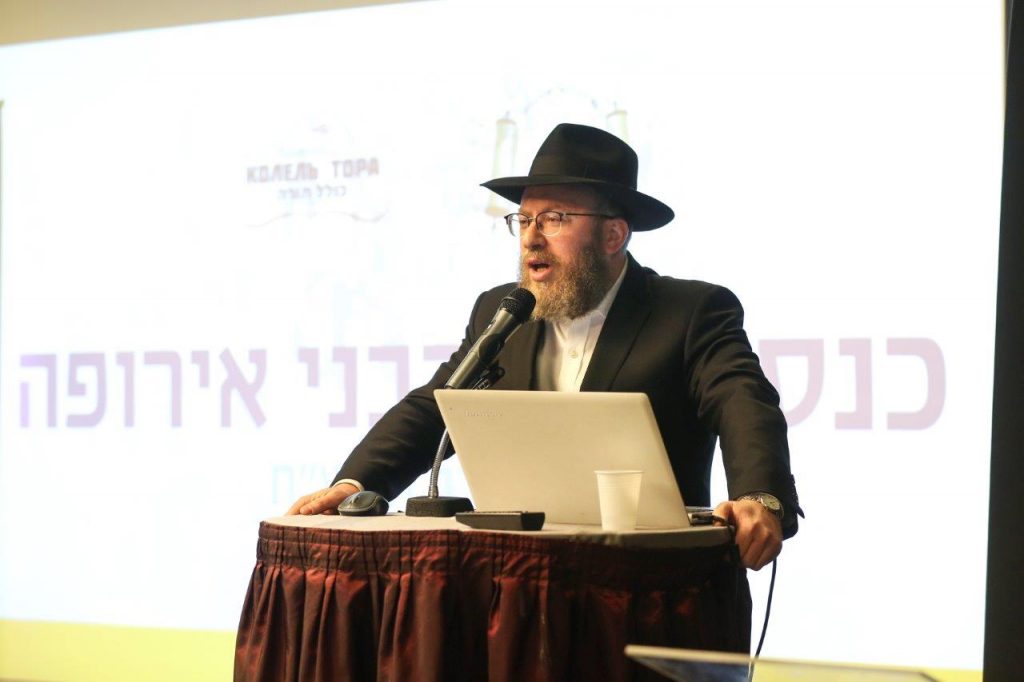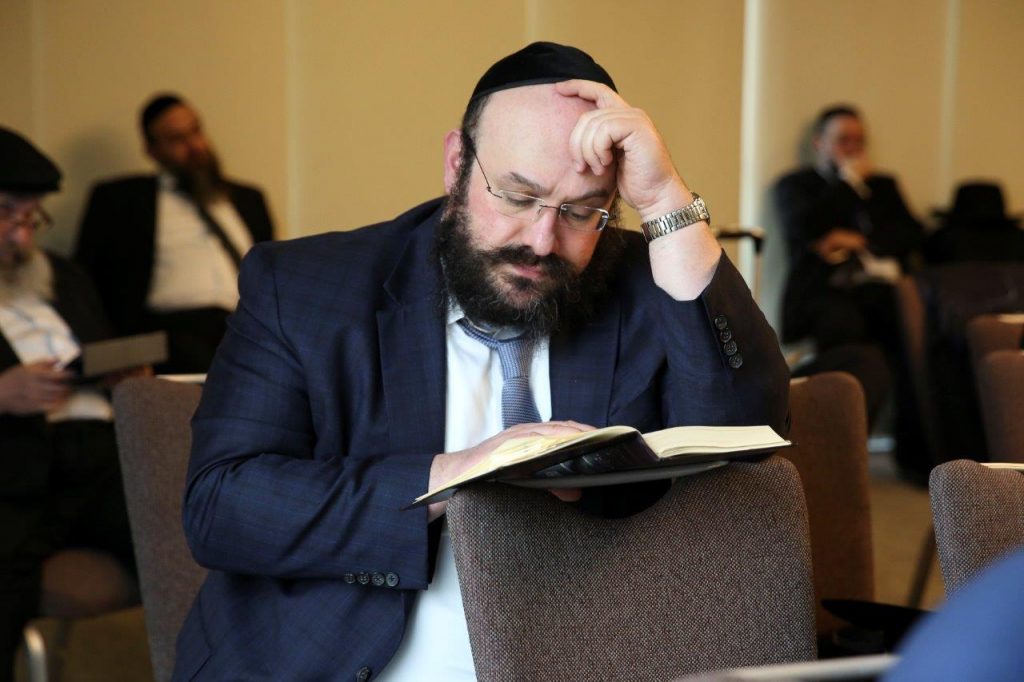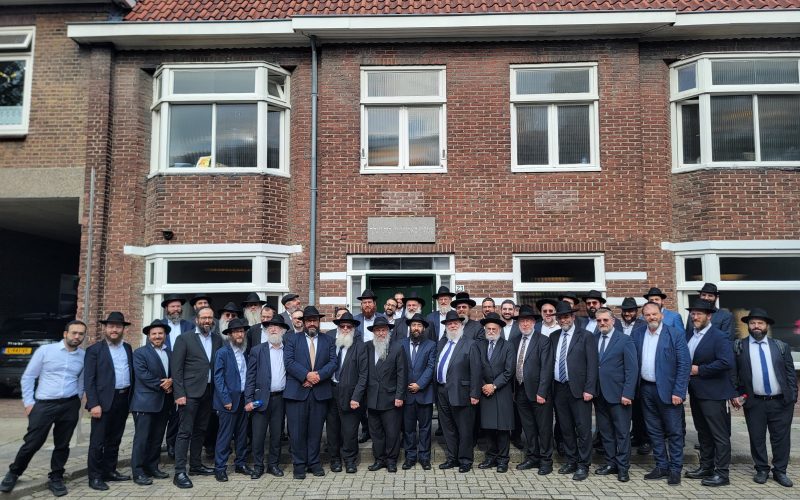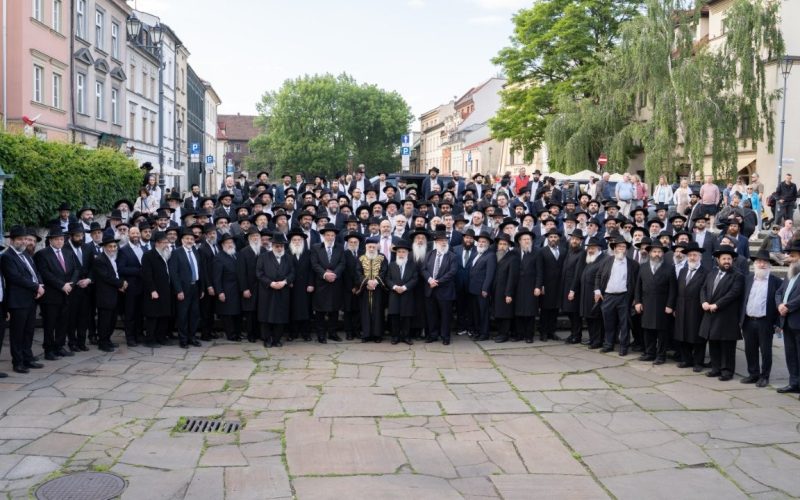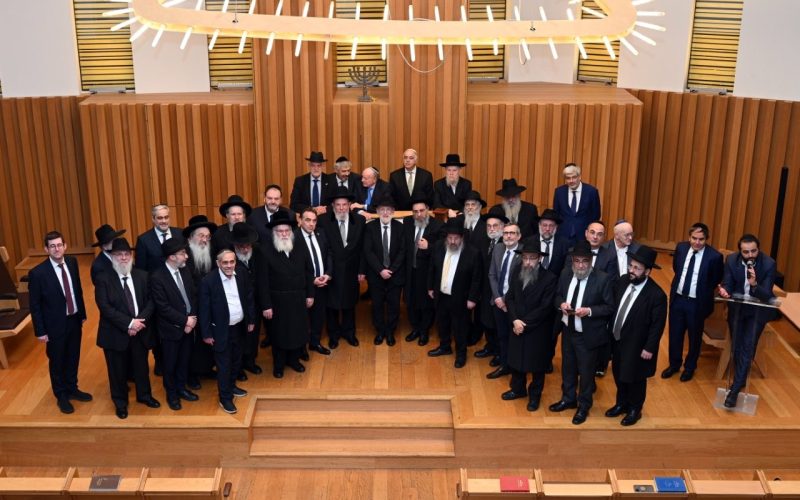Eighteenth Annual Conference of the Rabbinical Centre of Europe
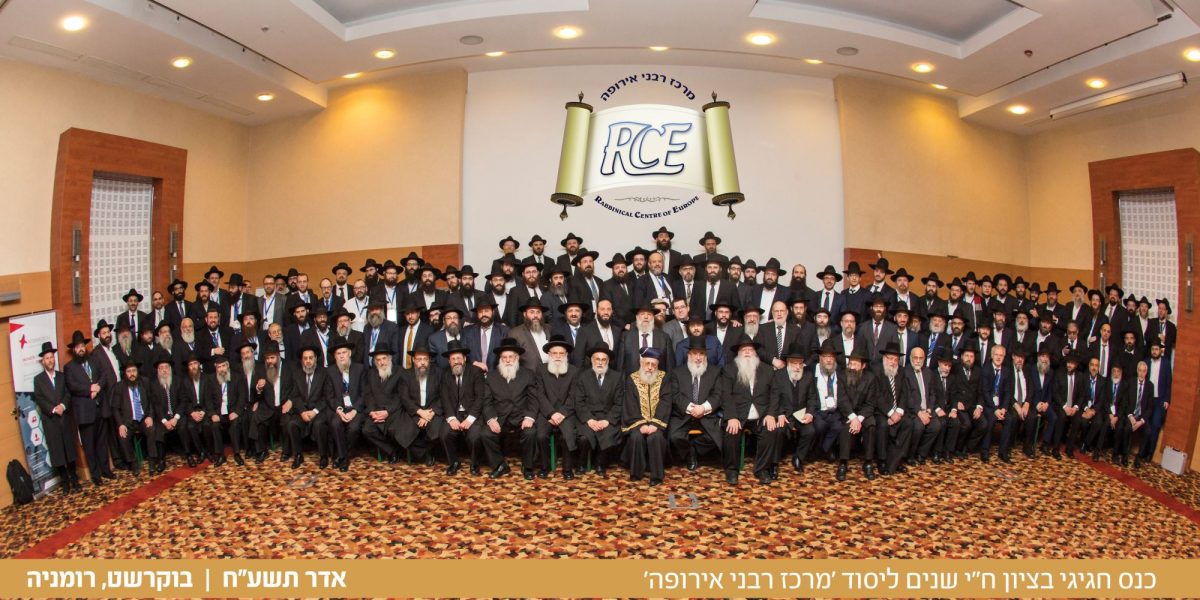
On Tuesday four hundred rabbis, ambassadors, and government officials from all the countries in the European continent, together with representatives of Romania’s Jewish communities, participated in an evening in recognition of the rabbis’ communal activities. The event took place in Bucharest, Romania’s capital, marking eighteen (chai) years since the RCE was established.
The honored guest, Harav Yisrael Meir Lau, brought tears to the rabbis’ eyes as he told the touching story of his friend Moishele, whose father was murdered in Buchenwald only days after Moishele became a bar mitzvah, shortly before Shabbos Hagadol. “After he heard the tragic news,” Rav Lau related, “the boy asked for a siddur so that he could say kaddish for his father, Reb Leibel; but the men in his barracks told him that no one had a siddur, for anyone discovered with a siddur in his possession was likely to be killed on the spot.
“But Moishele would not stop asking for a siddur. Finally, he was told that there was a rumor that an elderly Jew working in the laundry department had smuggled in a siddur. Moishele hurried to the old man and explained that his father had just died, and he needed a siddur to recite kaddish. When the old man denied having a siddur, Moishele responded by taking his daily ration of bread – all 150 grams of it – from the pocket of his prison uniform. ‘I know that today is Shabbos,’ Moishele said, ‘and it is forbidden to fast, but I am willing to commit this sin in exchange for a few minutes with the siddur, so that I can recite kaddish for my father.’
“The old man, astounded by the boy’s willingness to give up the only food he had, brought out a small siddur, ragged from use. He looked all around to make sure no one was watching, then he said, ‘Here is the siddur, but you need a minyan to say kaddish.’
“ ‘That’s not a problem,’ Moishele replied. ‘Here you have piles of uniforms that were taken from Jews who were murdered by the Nazis. They will complete the minyan, together with the two of us.’ He took the siddur, opened it, and said ‘Yisgadal v’yiskadash….’
“Only days later,” Rav Lau continued, his voice choked with tears, “the Allied forces liberated the camp, and each Jew went his own way. Moishele immigrated to Eretz Yisrael and built his life anew in Bnei Brak. He raised a fine family of Torah Jews. He passed away last year, just a few days before Pesach. I came to the funeral and, standing near him, I told the family and the others who were there about the kaddish that he had recited for their grandfather, Hy”d. Then I addressed Moishele: ‘Your three sons will recite kaddish for you today, and they will continue for the entire year. They won’t need a siddur to read it from, for you gave them a wonderful Torah education. Their kaddish will elevate your soul and that of your father, Reb Leibel, who got only a single kaddish when he died. But know that this one kaddish shook worlds, reaching the highest level of Heaven, and it still echoes through the Heavens today.’”
Rav Lau then spoke to the hundreds of RCE rabbanim with great emotion: “Your work to spread Torah and Yiddishkeit, the blessed activities of eighteen years that we are celebrating today, has resurrected European Jewry. This is the greatest revenge that we could possibly have against the Nazis, ym”s, who destroyed Yiddishkeit in Europe. Before the Holocaust Romania was the cradle of Chassidus, but after the Holocaust there was nothing left.
“Two-and-a-half weeks from now, all of Am Yisrael – children, parents and grandparents – will be seated at the Seder table. We will all declare ‘Vehi she’amda, in every generation our enemies rise up to destroy us, but Hakadosh Baruch Hu saves us from their hands.’ Even today in Europe, anti-Semitism is rearing its ugly head ever more viciously. People are trying to snuff out Judaism by enacting various laws forbidding our religious practices. All we have left is our Torah; that is what ensures that Hakadosh Baruch Hu will save us. And who nurtures and protects us? It is you, the rabbanim of the Jewish communities, members of the RCE, who have chosen to support the Jews of Europe until we reach the time of ‘chasal siddur Pesach,’ the time of l’shanah habaah biYerushalayim habenuyah.’ Your activities are the best response to the anti-Semitic legislators of our times.”
There was not a dry eye in the room as Chief Rabbi Lau stepped down from the podium.
The RCE’s director Rabbi Menachem Margolin also spoke that evening, focusing on the many and varied activities and services performed by the member rabbis of the RCE. He also described how they are at the forefront of the struggle against so much anti-Semitic legislation.
Guest of honor Chief Rabbi Yitzchak Yosef, the Rishon Letzion, remarked that the RCE is bringing Jews all over Europe closer to Torah and mitzvos. “I follow the activities of the RCE, and I am amazed at how you bring the light of Yiddishkeit to people who know nothing about it. Just two weeks ago in Yerushalayim, I attended a bar mitzvah celebration sponsored by the RCE for 114 youths. If not for the RCE, none of those children would know anything at all about Judaism.
“The RCE works tirelessly on behalf of the Torah and its values. To date they have constructed or refurbished some sixty mikva’os. With Hashem’s help they will one day have built 600 mikva’os.”
Later in the evening, Harav Yosef officially authorized twenty European rabbis to perform Jewish weddings, after they had satisfactorily passed the tests administered by Israel’s Chief Rabbinate. He made particular mention of Rabbi Eliyahu Bar Shalom of Bat Yam, author of Mishpat Hakesubah, who is in charge of teaching the European rabbis this area of halachah. “Torah learning that leads to practical action is very great,” said Rav Yosef, quoting the gemara. “Teaching practical halachah is something the RCE has been doing and continues to do throughout Europe.”
The evening event in appreciation of the rabbanim followed a day filled with halachic discussions, which was part of the RCE’s annual conference in Romania, with 350 participating European rabbis from the cities and congregations where they serve. The RCE’s deputy director Rabbi Aryeh Goldberg led the conference skillfully.
In a halachic discussion on the second day of the conference, Chief Rabbi Yitzchak Yosef remarked that Jewish employees of Israel’s Electric Company desecrate Shabbos regularly in the course of their duties. “I learned about this when I paid the company a visit a few days after Yom Kippur,” he explained. “One of the managers asked me whether I had enjoyed air conditioning in the synagogue on Yom Kippur, and I said that I had. He then told me that during the night of Yom Kippur the demand for electricity exceeded the supply, and Jewish technicians were called in to deal with the problem. He added that it is not possible to set up the system to solve such a problem automatically, without human intervention.
“My entire body began to shake. It is true that it is possible to rely on the fact that for some people it may be a matter of life or death if the electricity is not repaired, but it is certainly better to use a generator to supply your electricity on Shabbos.”
Harav Mordechai Sofer, manager of the raw ingredients division in the kashrus organization headed by Harav Moshe Yehudah Leib Landau of Bnei Brak, spoke at the conference at a session about kashrus. “Many people have the impression that whiskeys do not need any kashrus certification,” he said. “This is a terrible error, for some whiskeys are aged in barrels that were previously used for nonkosher wine.”
Continuing the discussion about related topics, the speakers were Rabbi Yosef Minsky, director of the RCE’s EK kashrus certification; Harav Yirmeyahu Cohen, Av Beis Din of Paris and member of the presidium of the Council of European rabbis; Harav Zamir Cohen, director of the Hidabrut organization; Harav Moshe Tuvia Weisberger, Av Beis Din of the Adas Yereim congregation in Budapest and member of the Council of European Rabbis; and Harav Yosef Pardes, one of Vienna’s leading rabbanim and dayanim.
In a session devoted to the subject of mikva’os, the speakers were Harav Yisrael Yaakov Lichtenstein, Av Beis Din of Bnei Yisrael Congregation in London and member of the presidium of the Council of European Rabbis, and Harav Eliyahu Landa, a senior member of the kashrus organization headed by Harav Moshe Yehudah Leib Landau of Bnei Brak and Rosh Yeshivas Tomchei Temimim-Lubavitch in Kfar Chabad.
On Wednesday, the final day of the conference, the main subject was Europe’s Kollel Torah and its influence on Jewish family life in the former Soviet Union. The project boasts 120 branches, spread throughout Europe and the former Soviet Union. In each of these kollelim, Jews from the local community come every day to study Torah. They listen to shiurim in Talmud, Shulchan Aruch, Chassidus and Jewish philosophy. They are tested and receive grants to supplement their income, just like any kollel member. The featured speakers for this day were Harav Moshe Weber, director of the Kollel Torah network, and Harav Yaakov Shapira, Rosh Yeshivas Merkaz Harav.
The conference drew to a close with a discussion about Torah education for youth, with a lecture by Harav Levi Sudak of London, who is an expert in dealing with dropouts from yeshivah schools. Also speaking were Harav Baruch Oberlander, Av Beis Din of the Kehillos Hachareidim in Budapest and member of the Council of European Rabbis, Harav Nachum Presman of Potsdam, Germany, and Harav Michael Oishie, Rabbi of Kaluga, Russia.
At the end of the conference, which was hosted by the local Chabad shaliach, Harav Naftali Deutsch, the participating rabbis expressed their appreciation to the directors and staff of the RCE, who invested so much to make such a rich and detailed program, especially the director Rabbi Menachem Margolin, deputy director Rabbi Aryeh Goldberg, Rabbi Yossi Beinhaker, Rabbi Mordechai Biton, and Rabbi Avraham Abba Turetsky.
